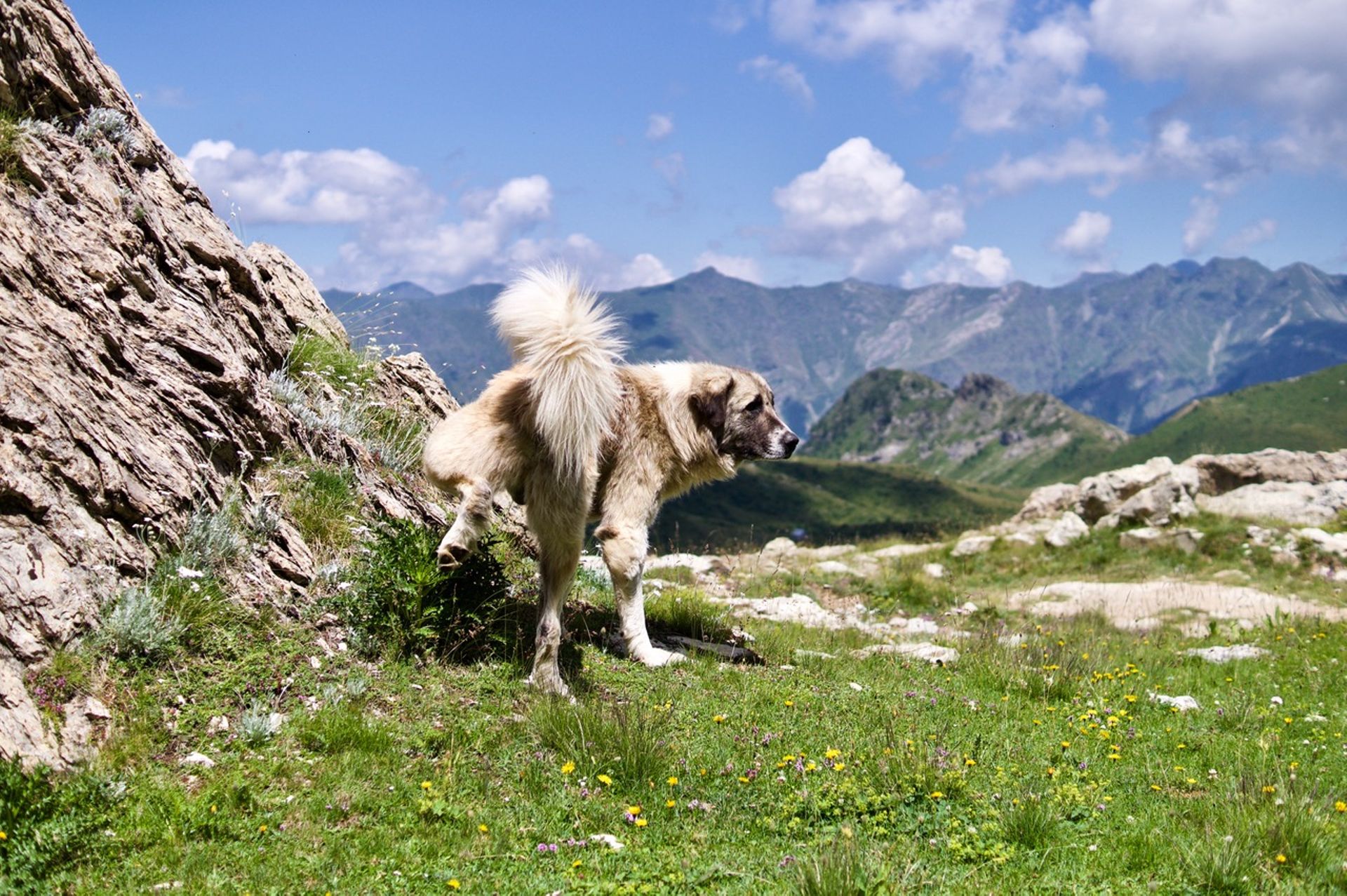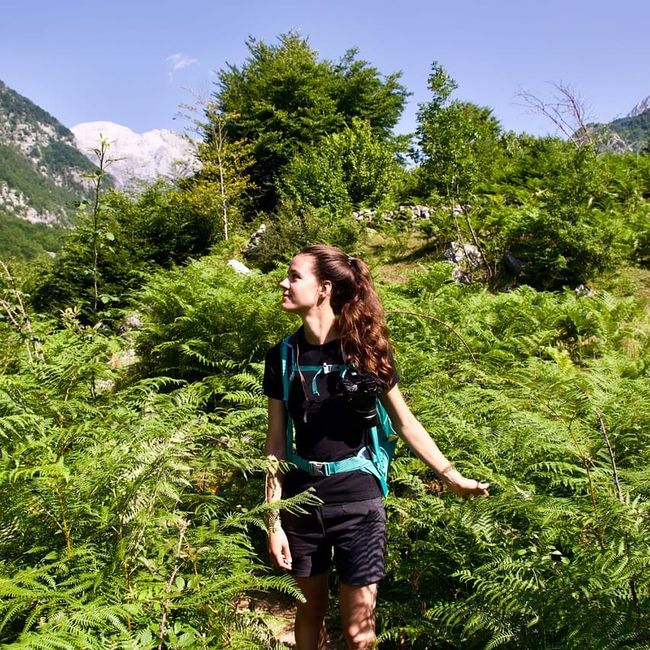Reykjavik, rain and rhubarb
Ebipụtara: 02.09.2021
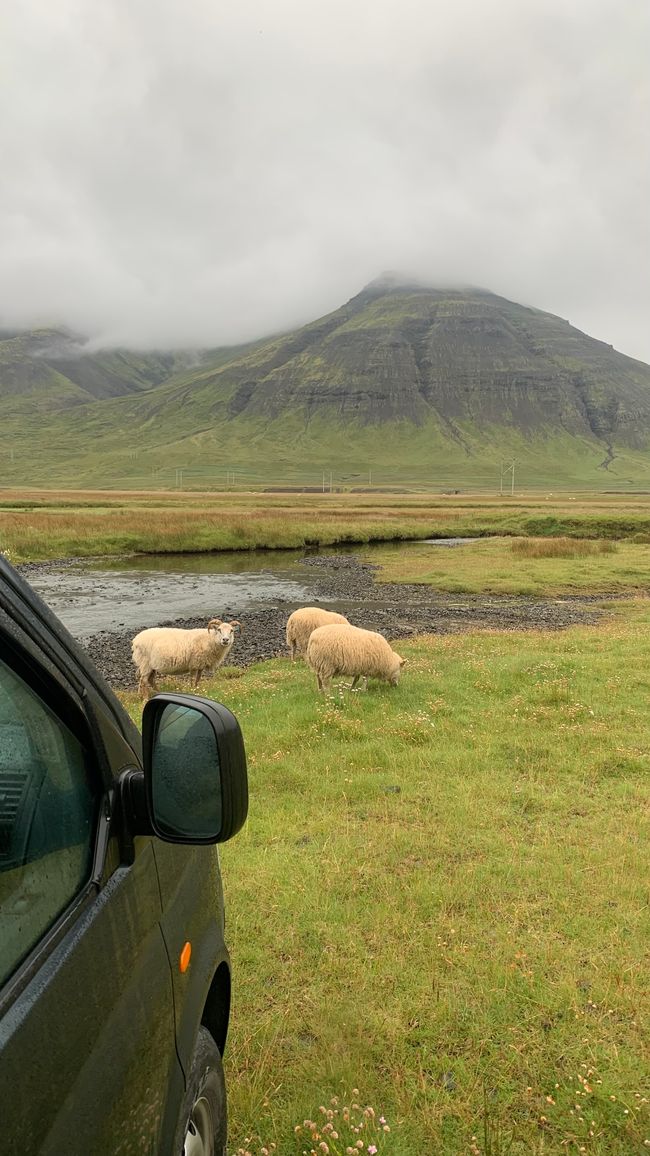
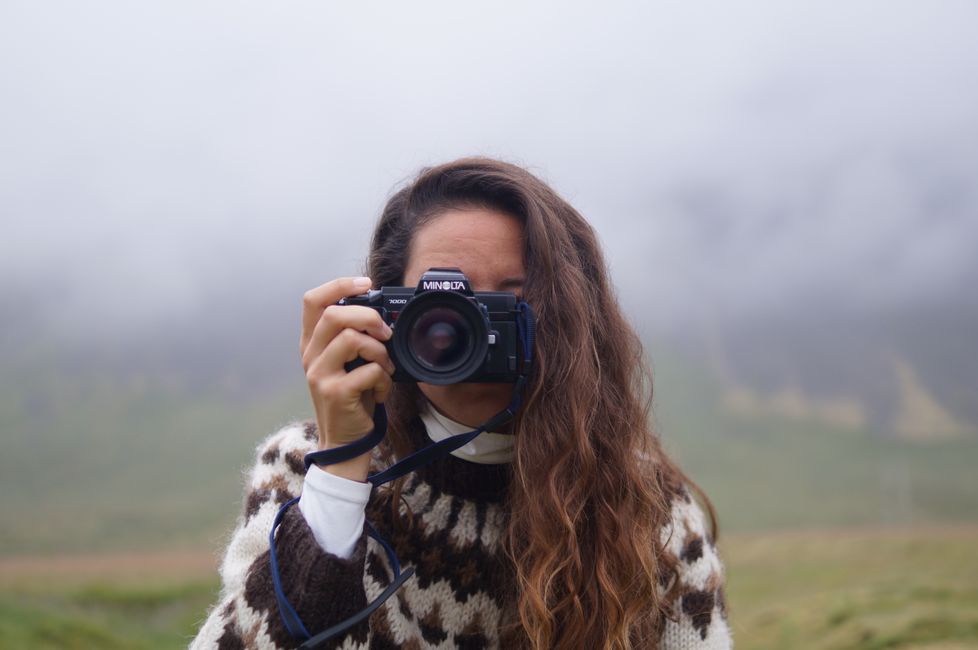
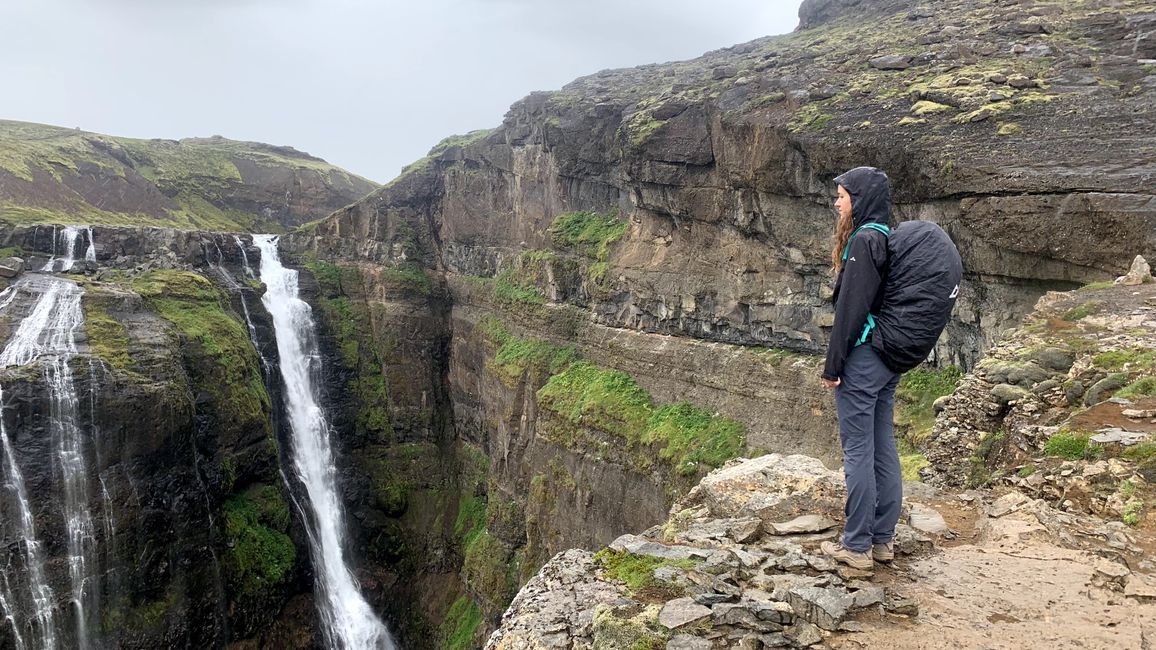
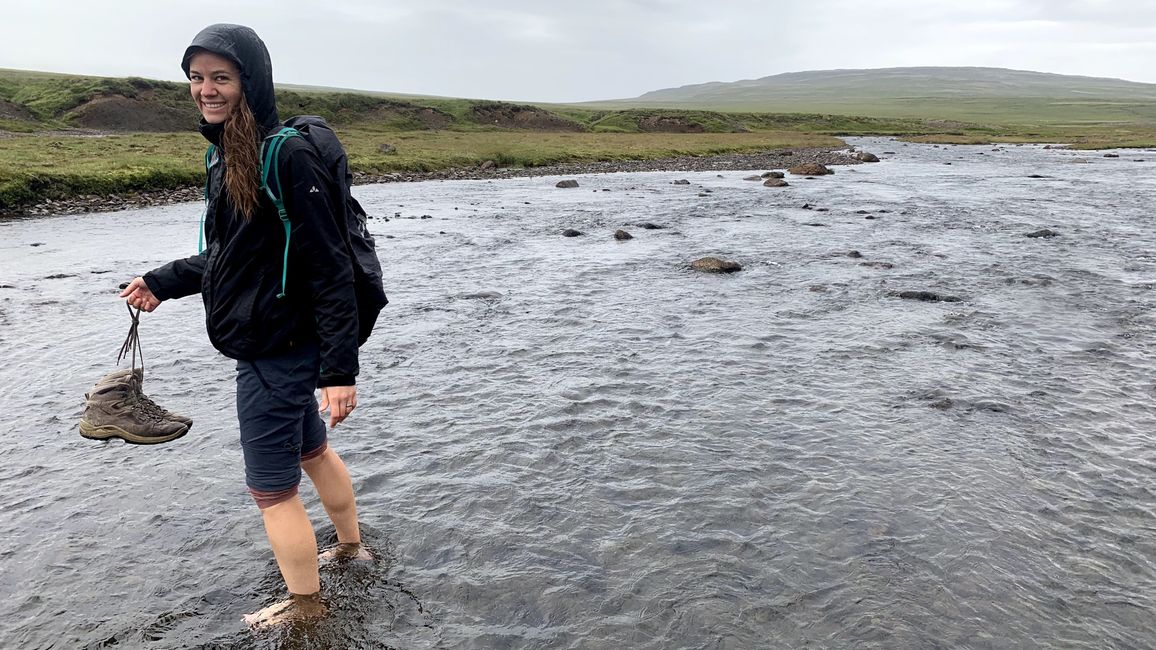
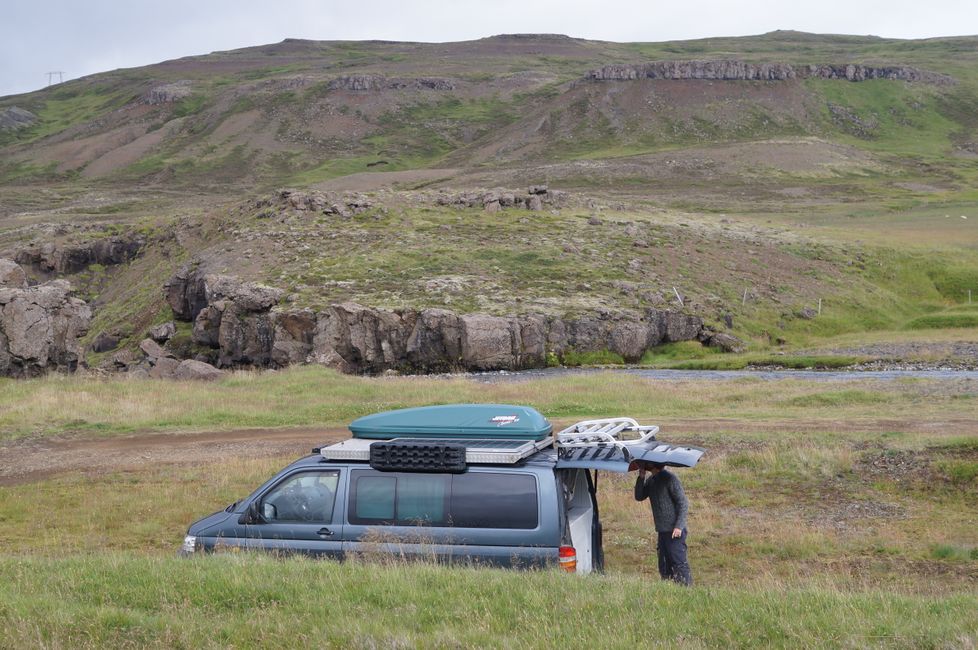
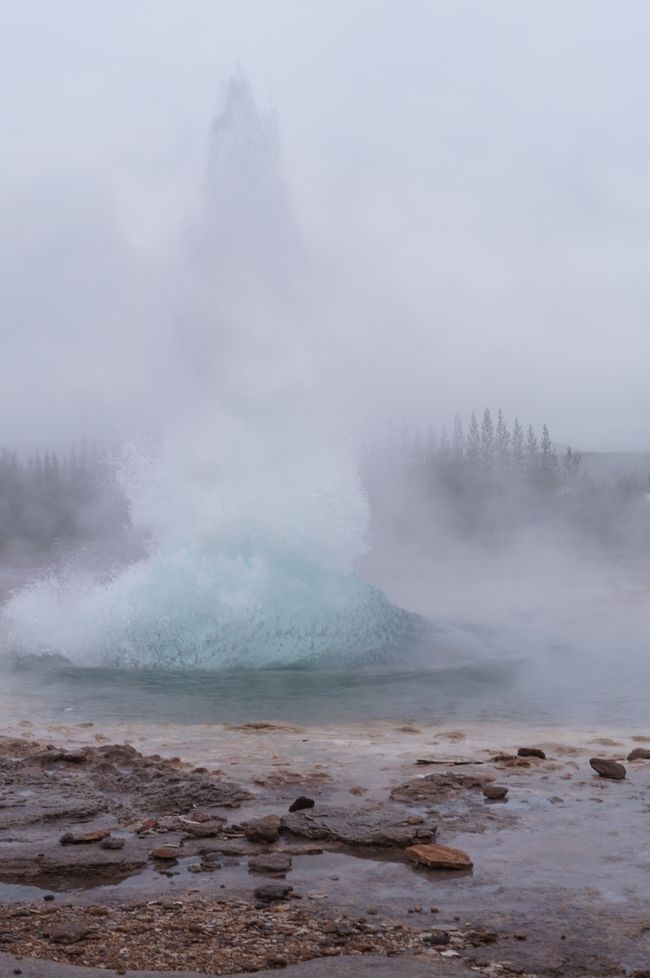
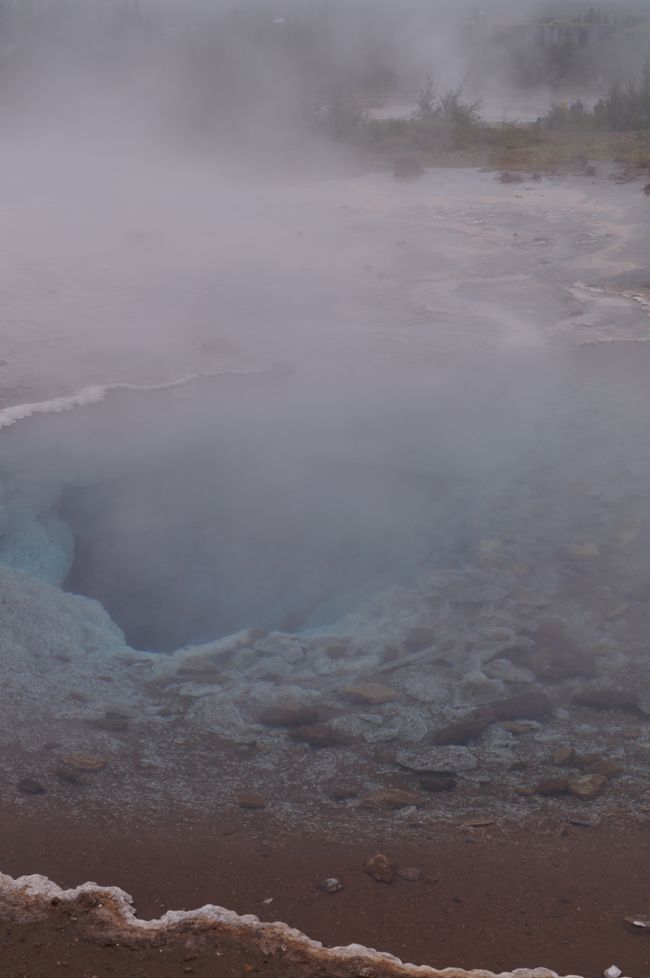
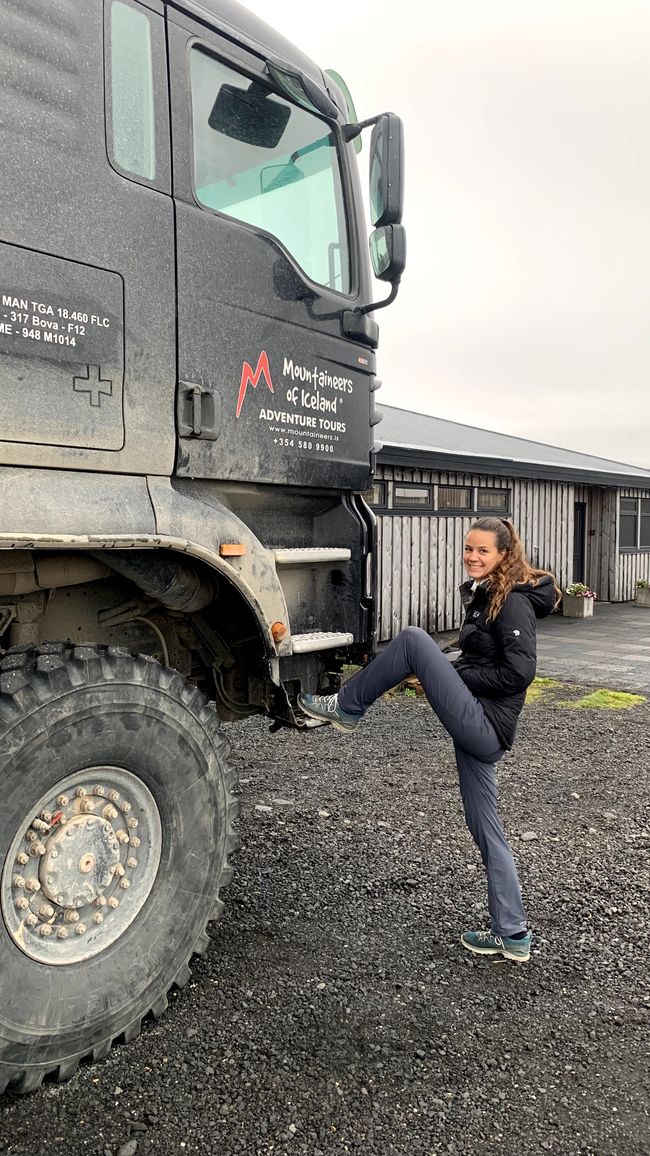
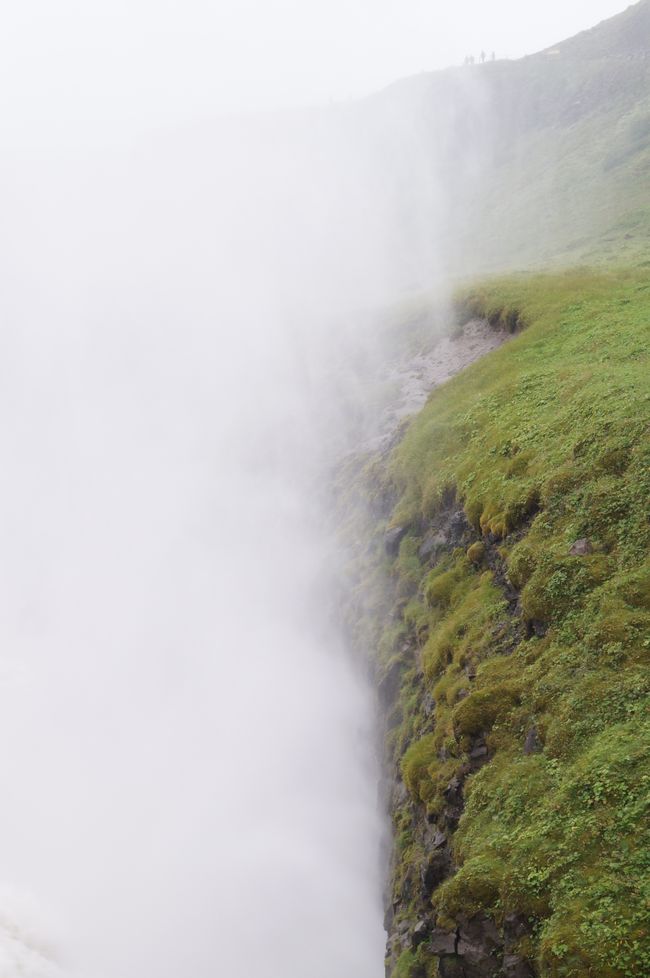
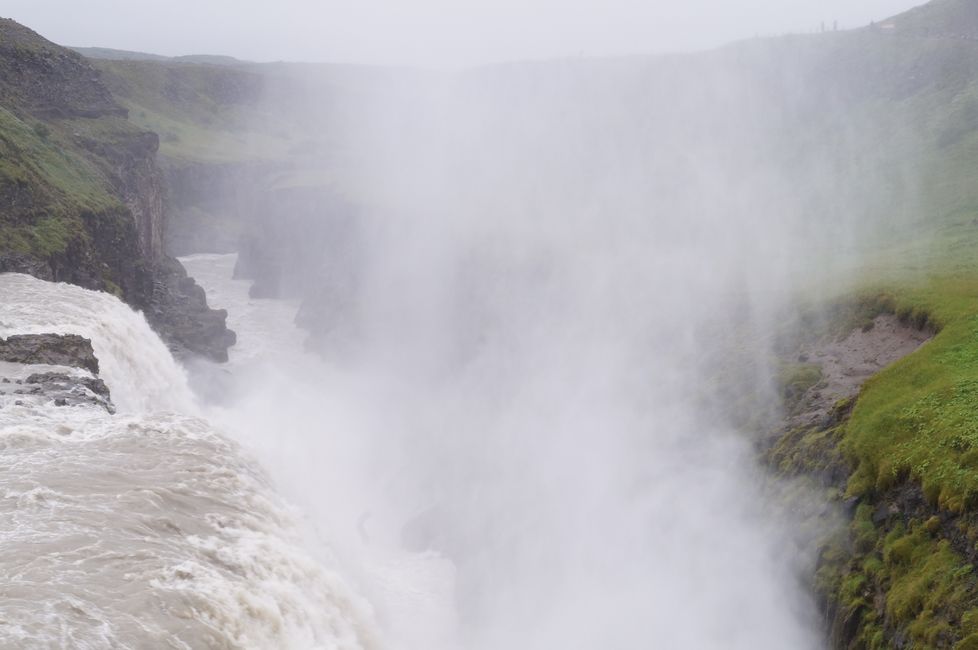
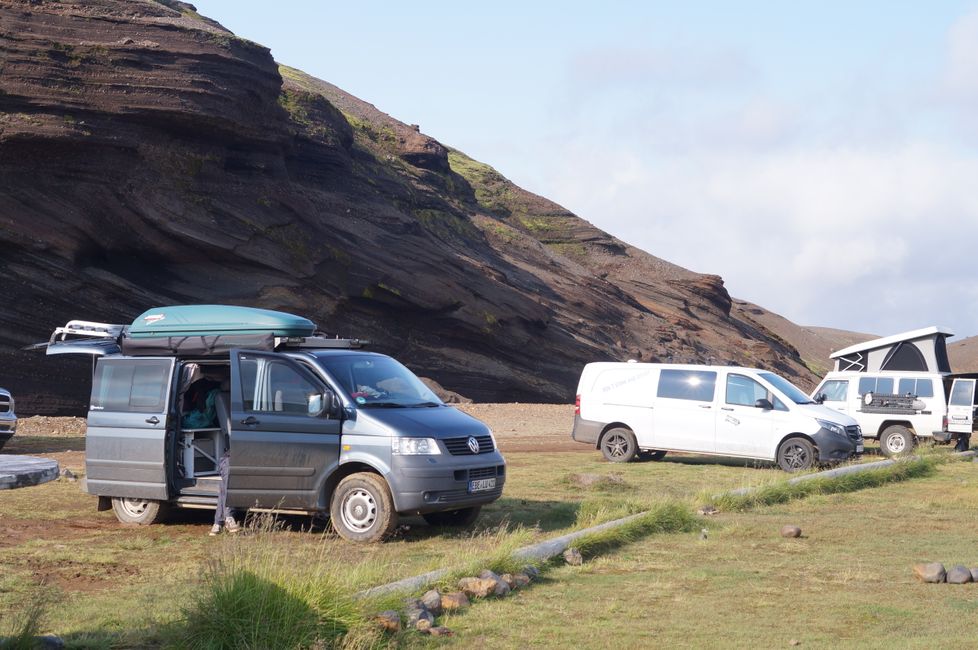
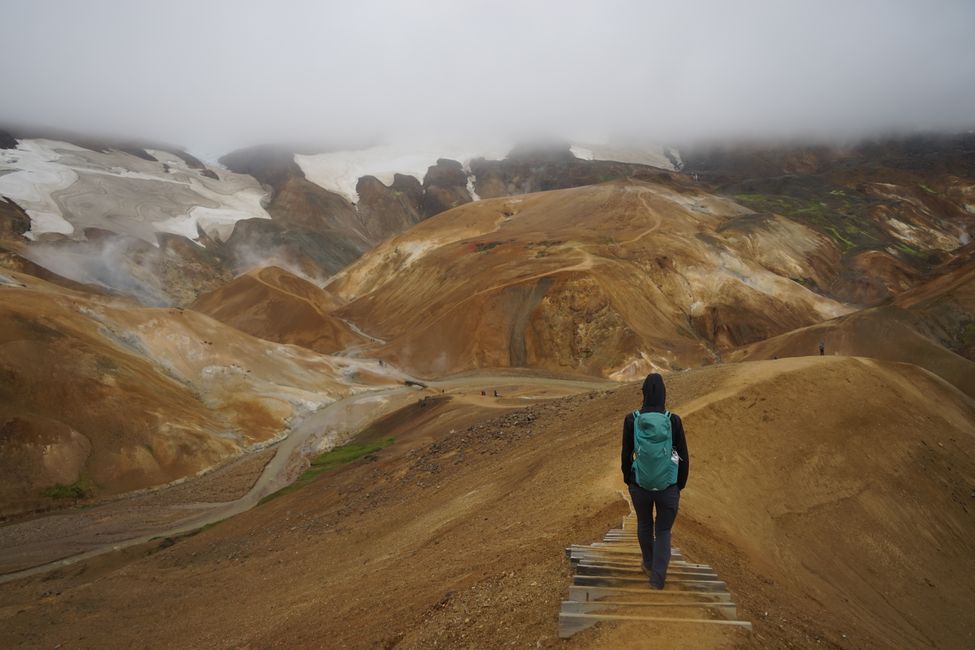
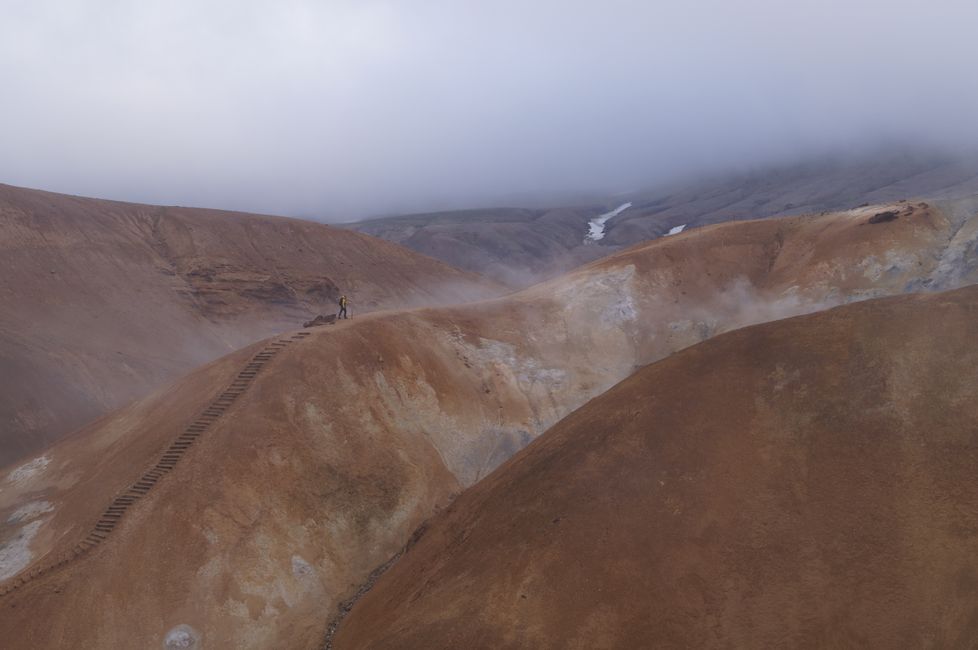
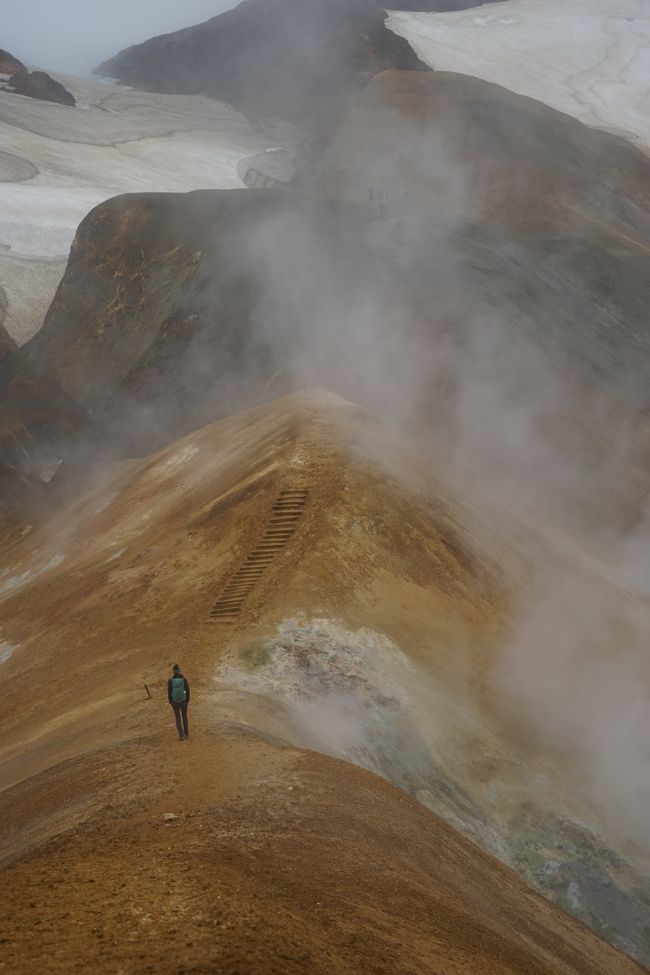
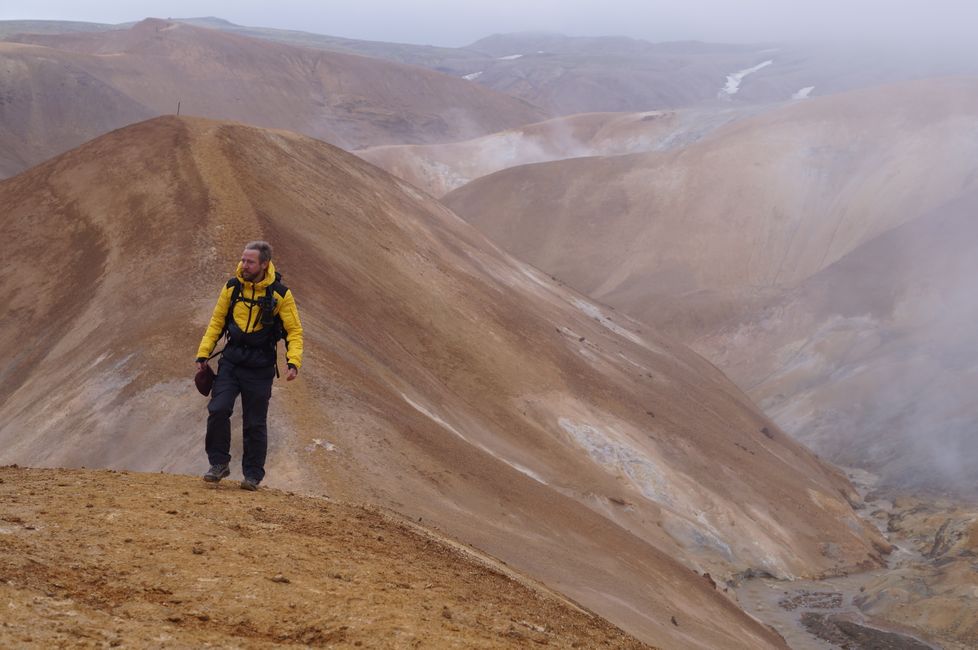
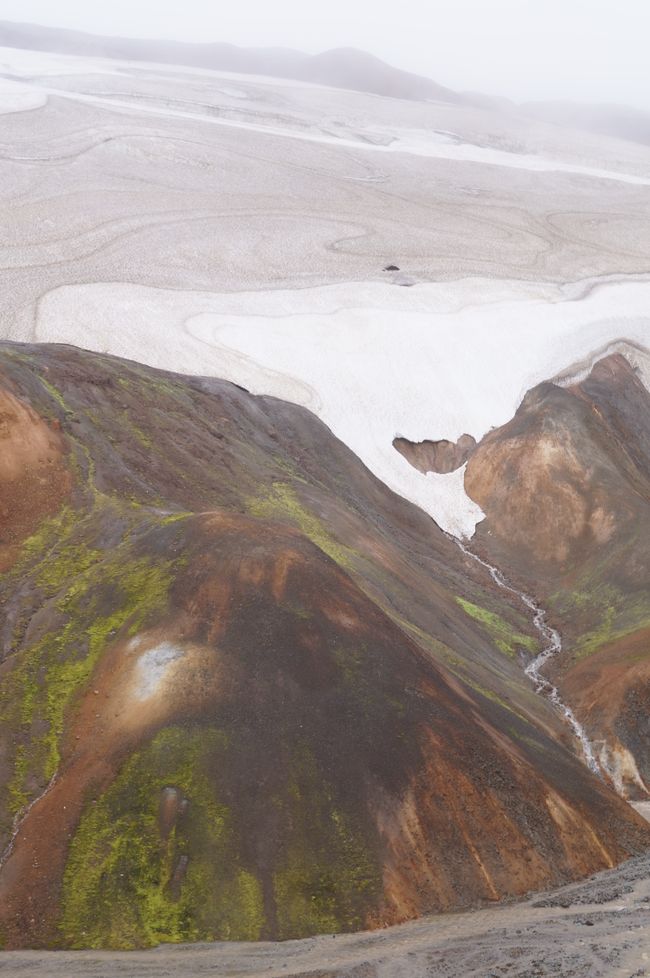
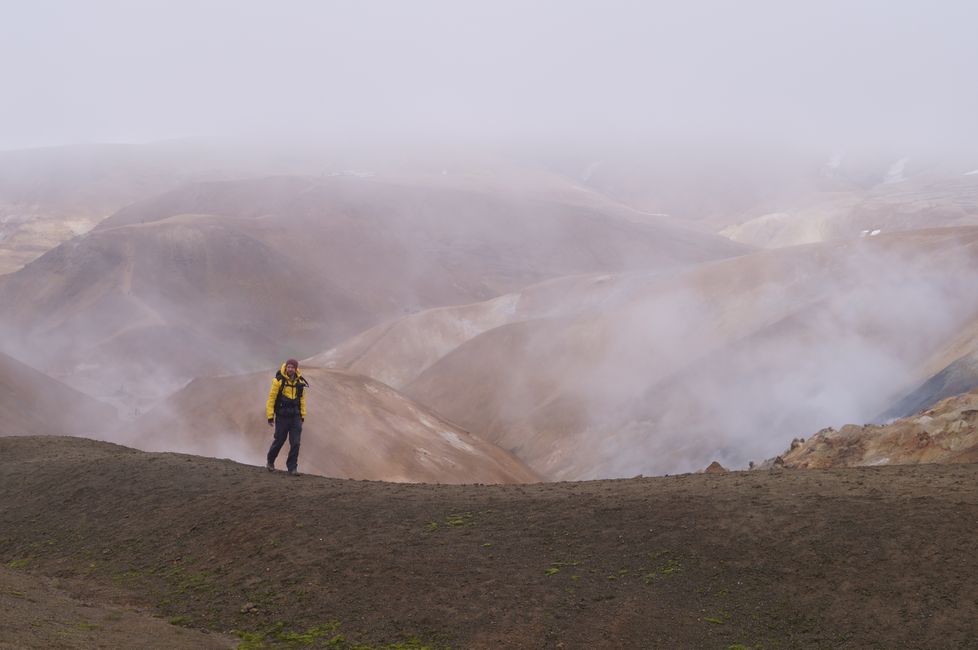
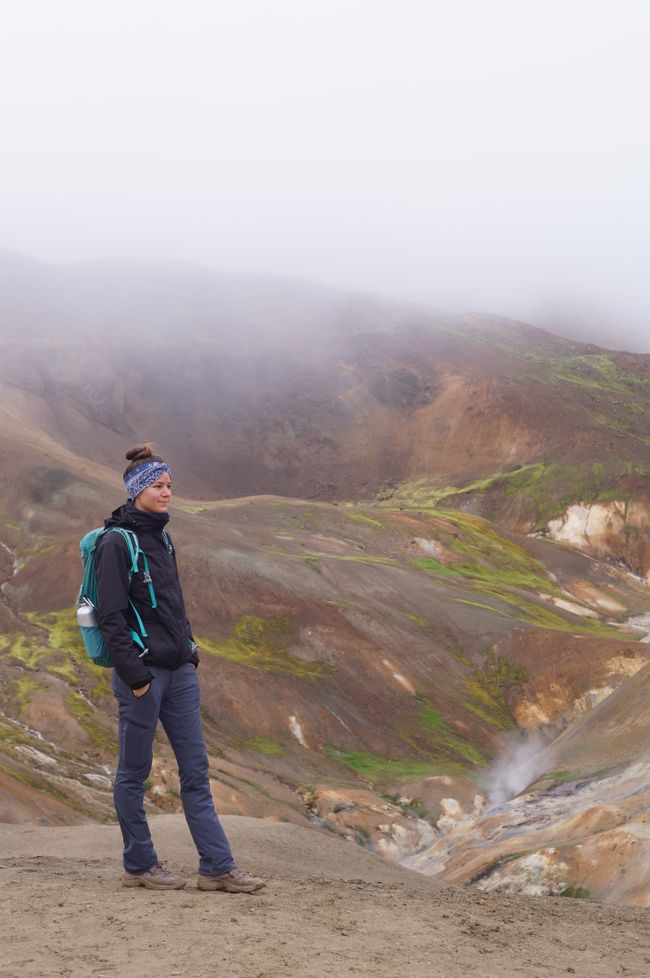
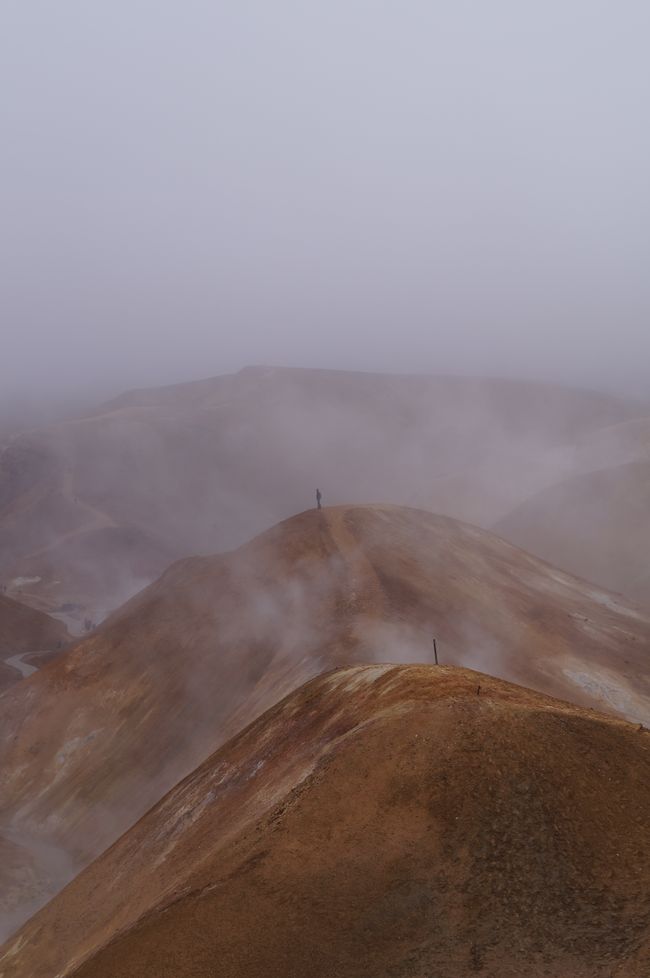
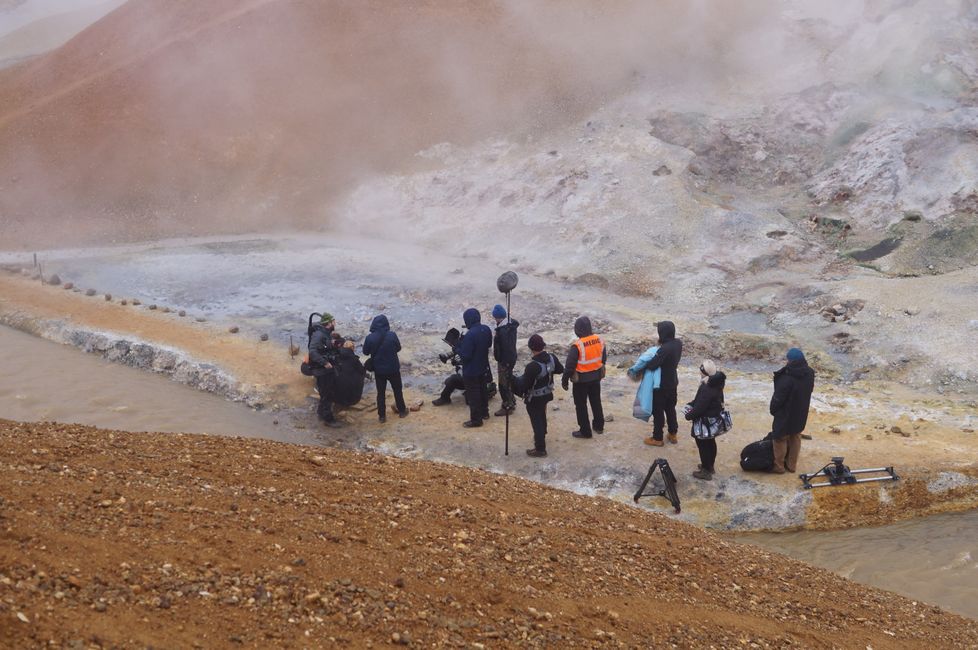
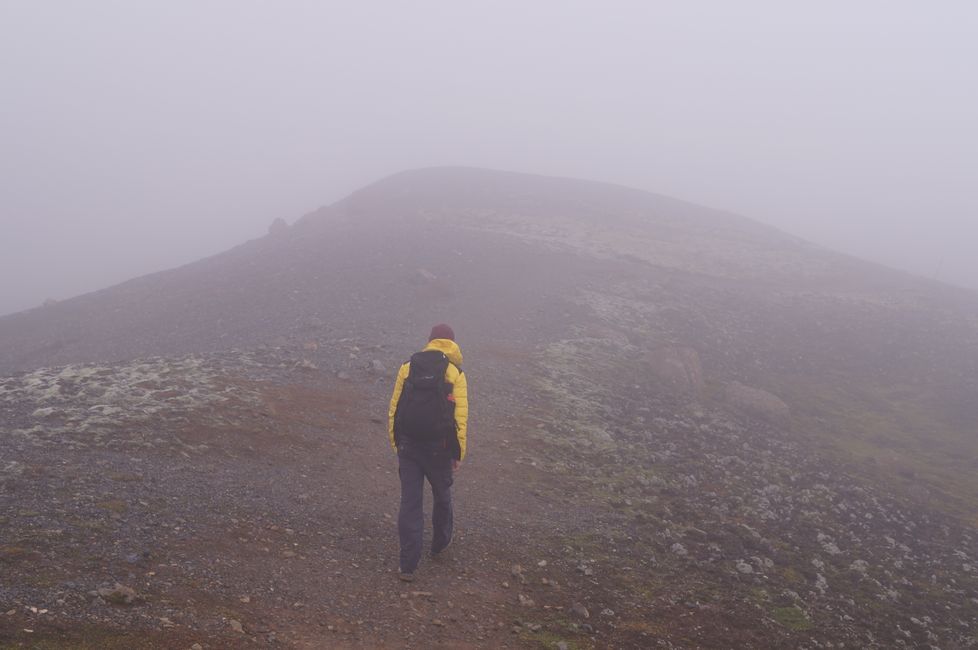
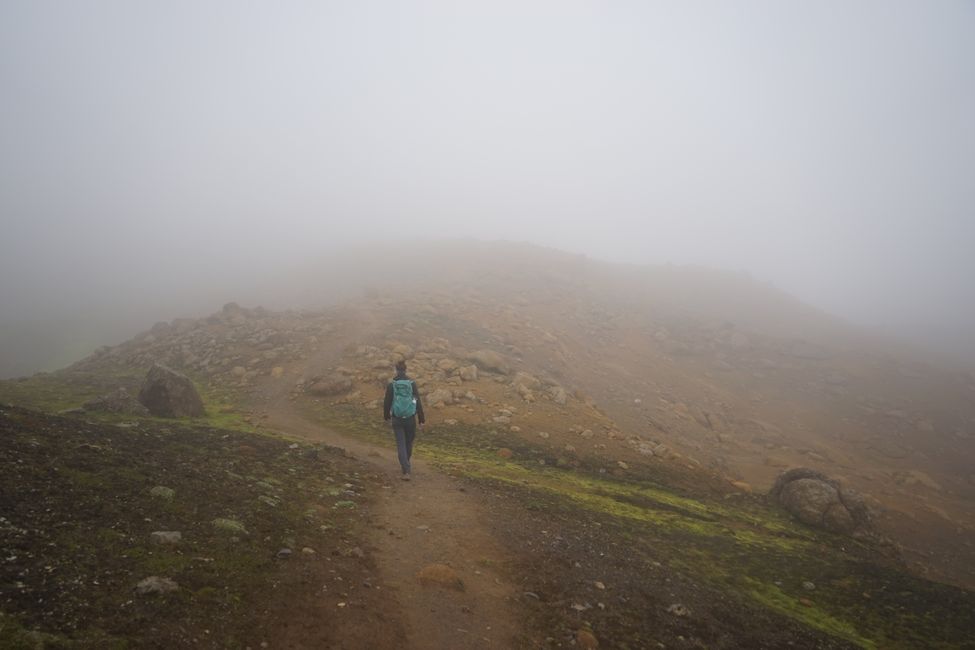
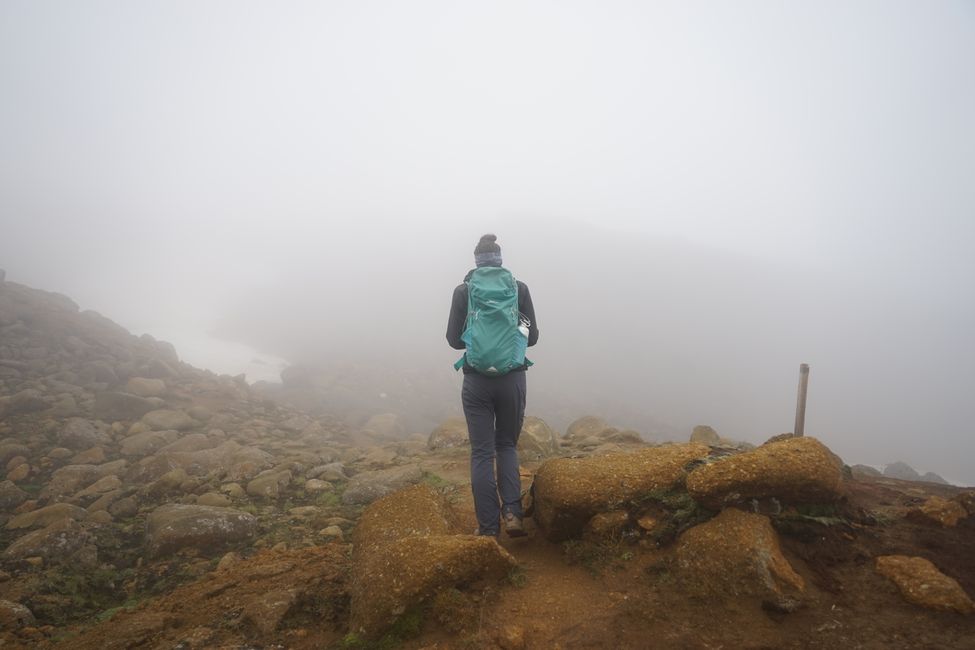
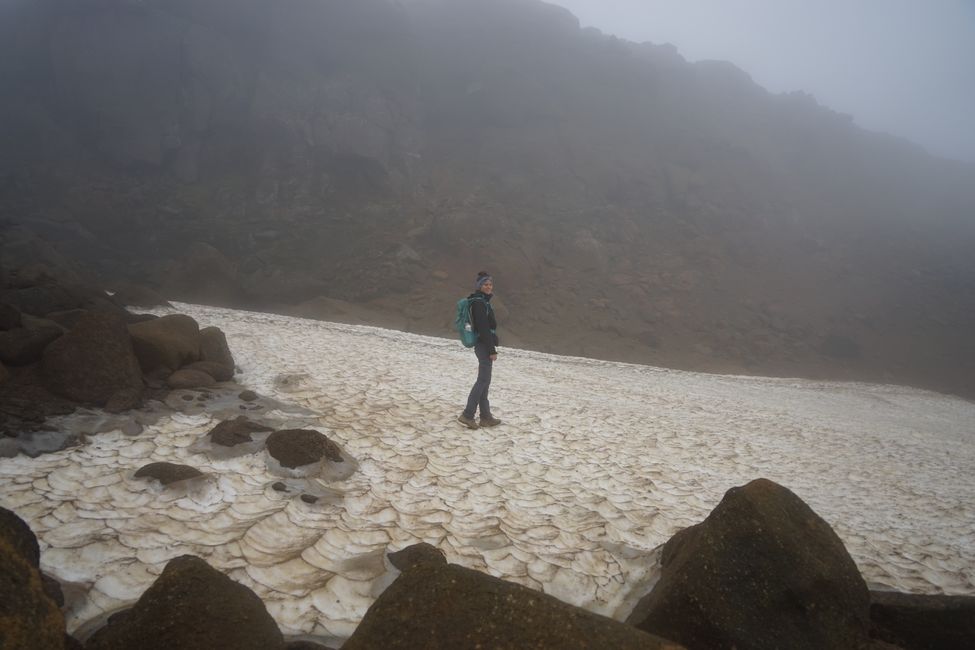
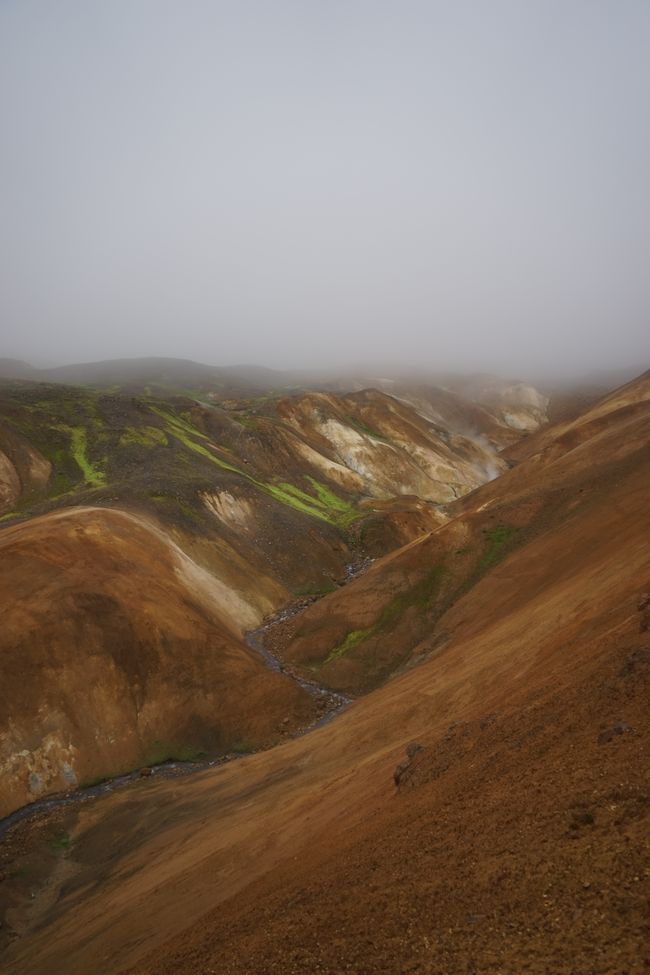
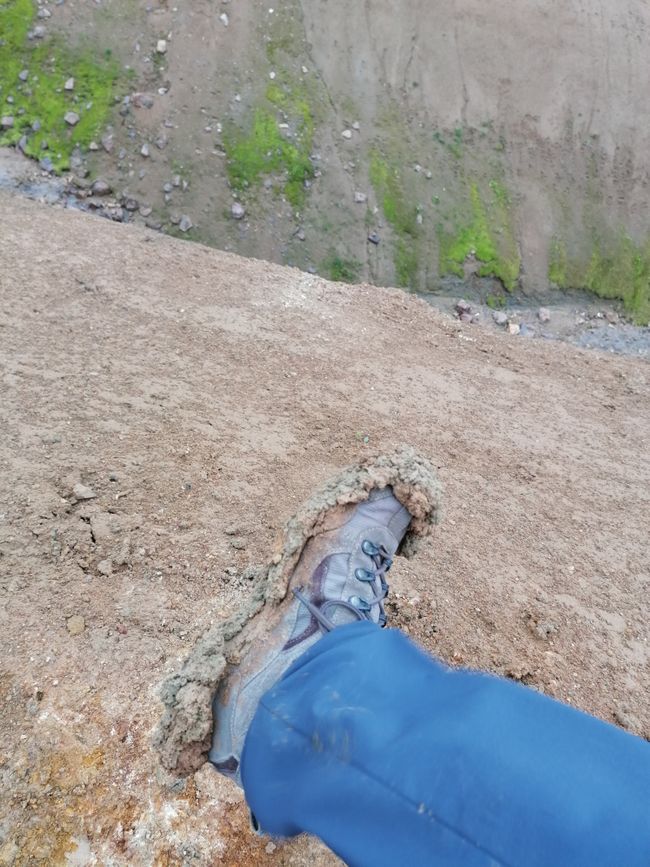
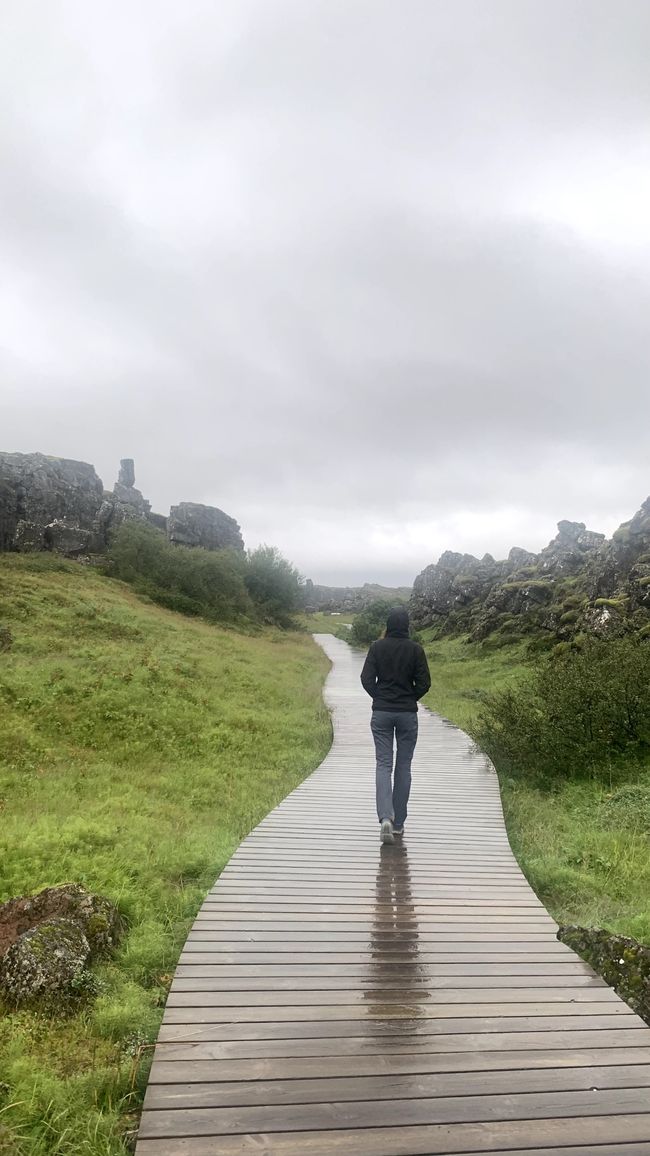
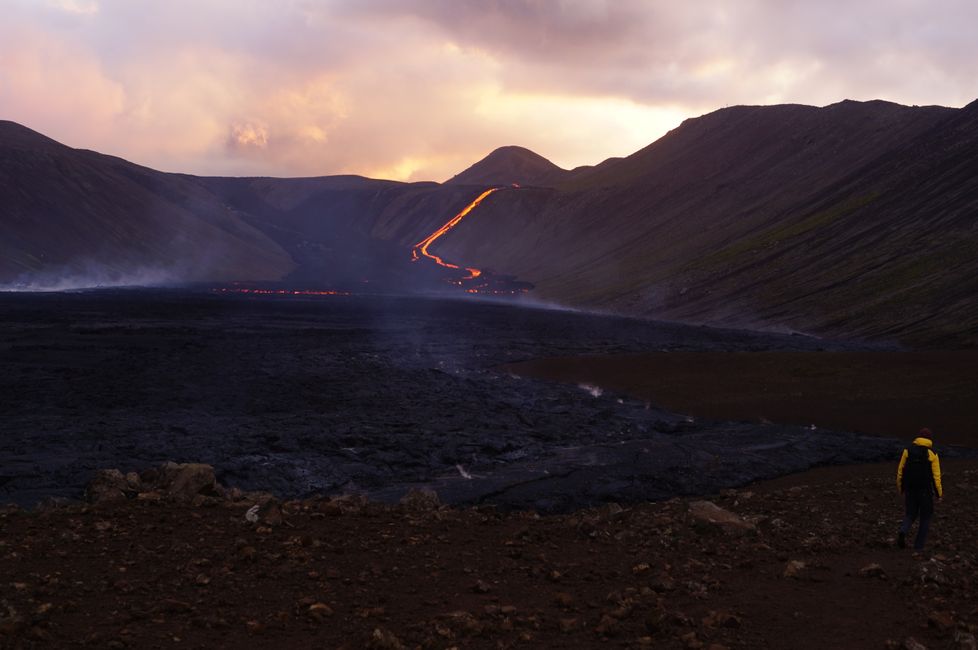
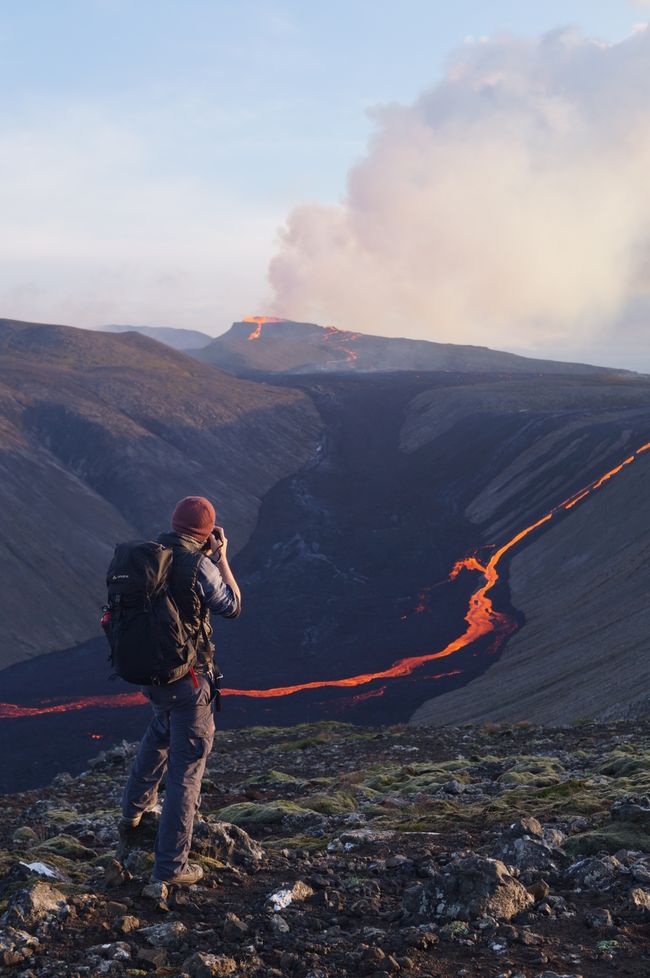
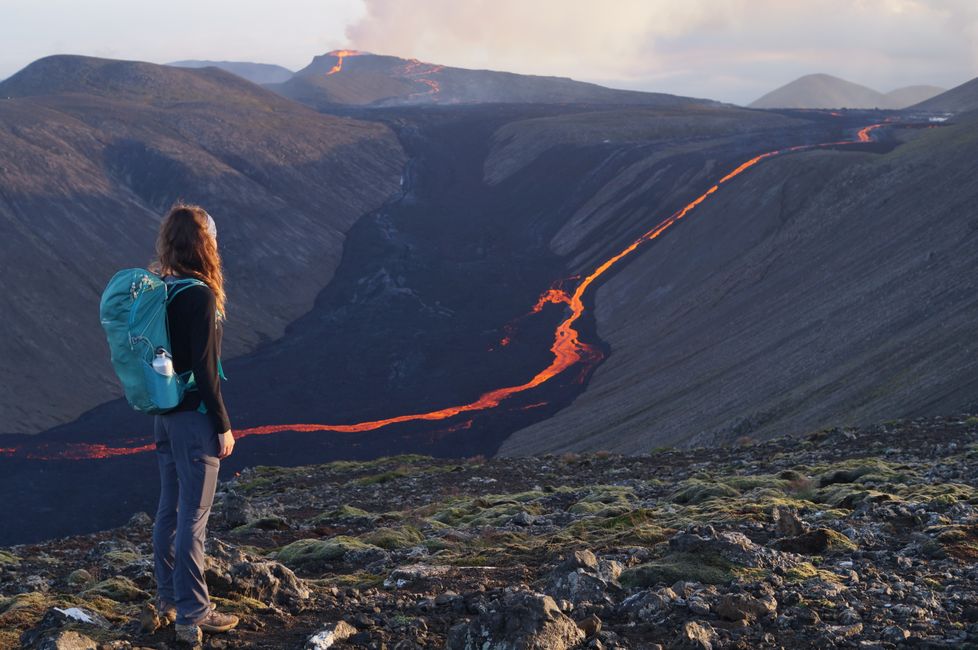
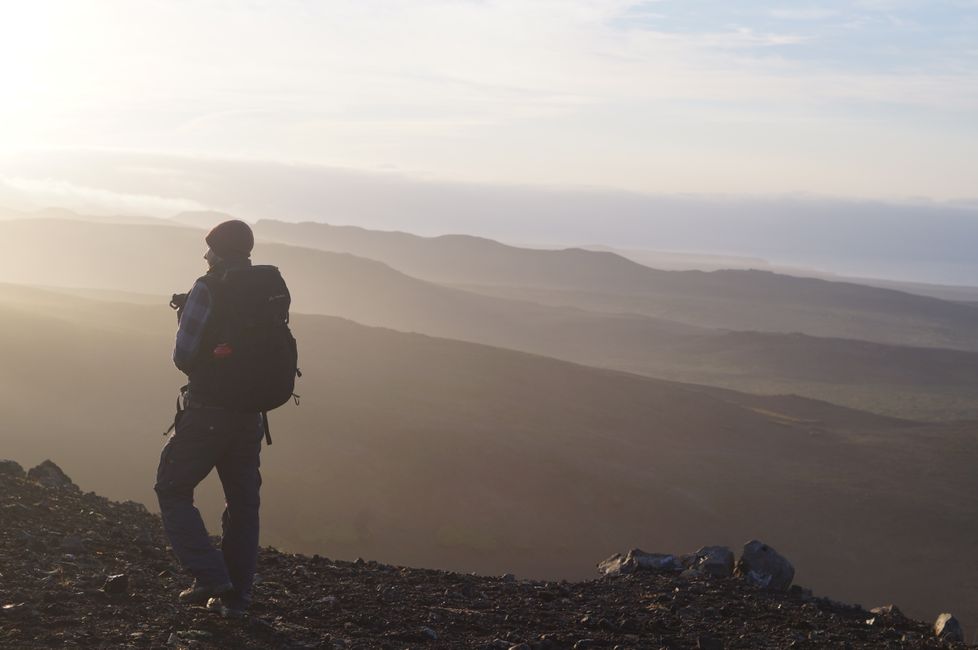
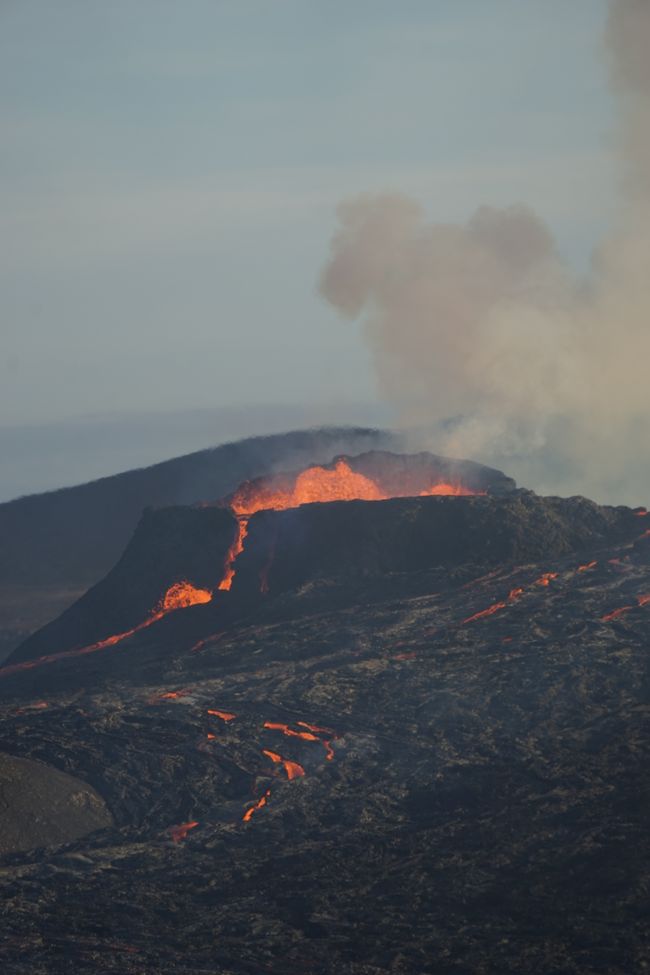
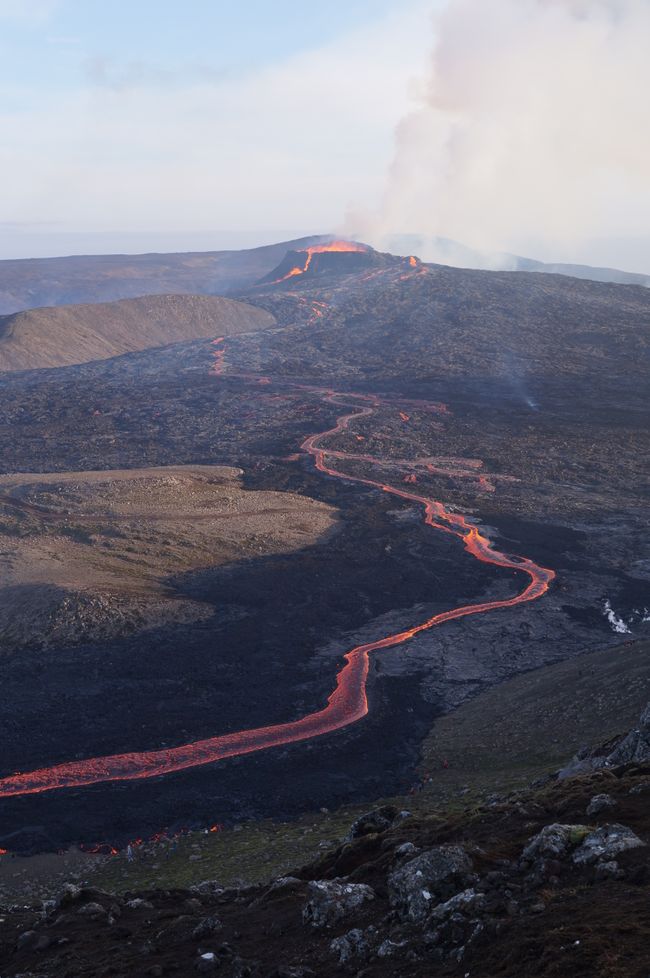
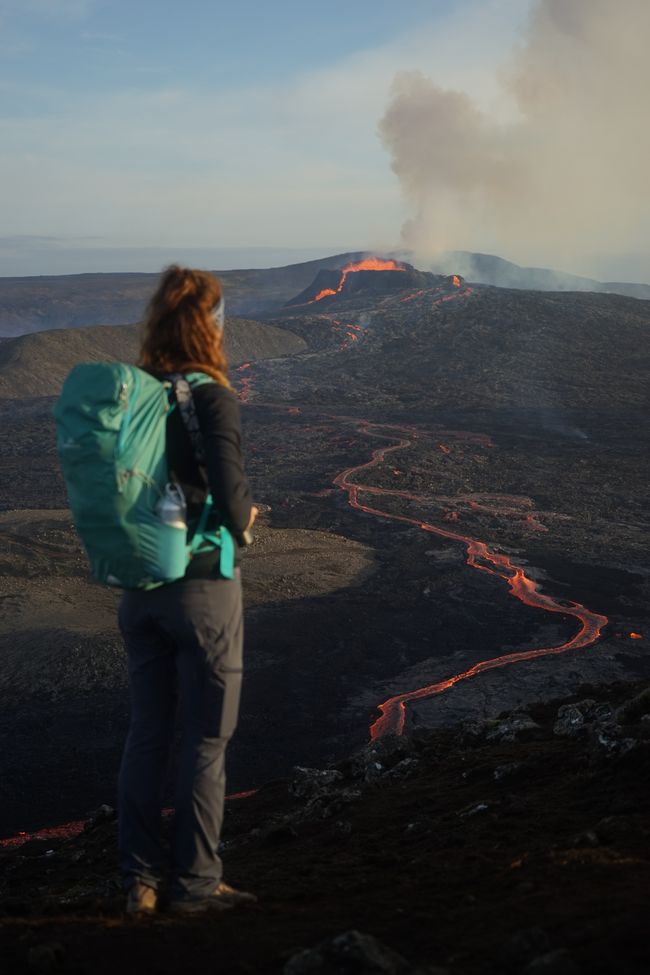
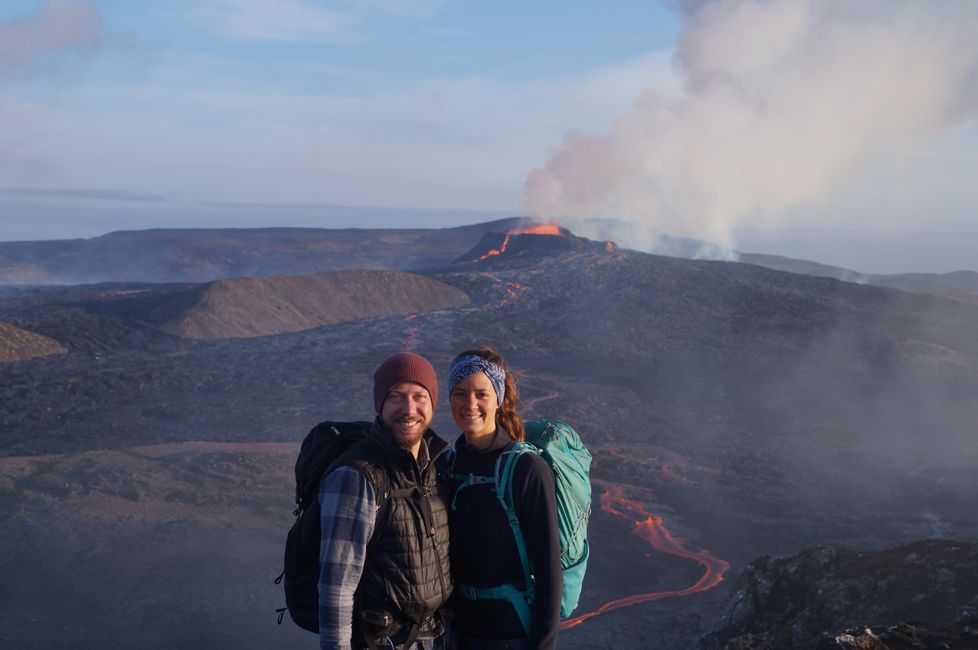
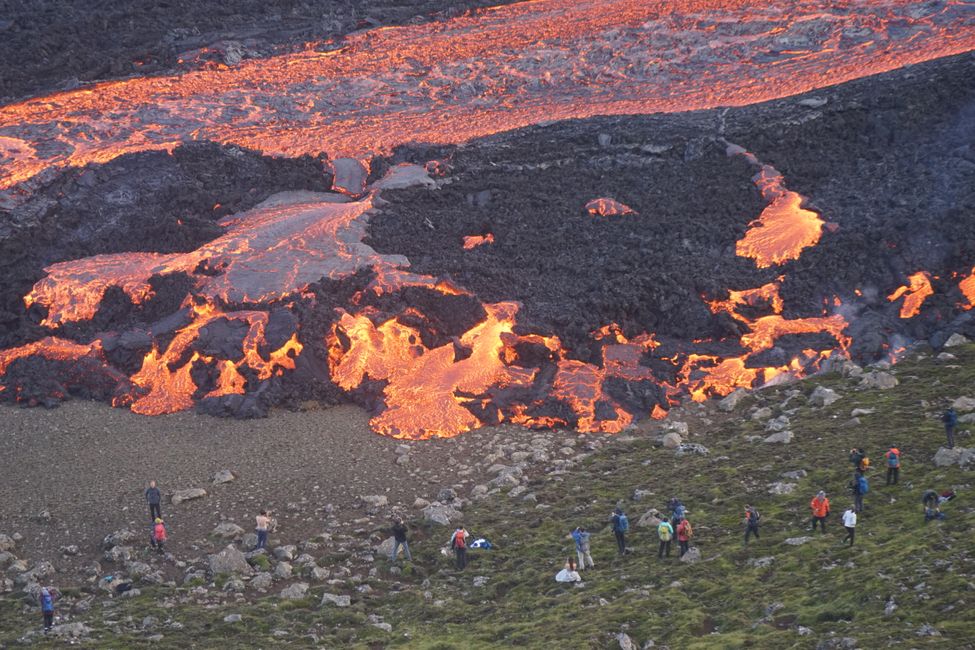
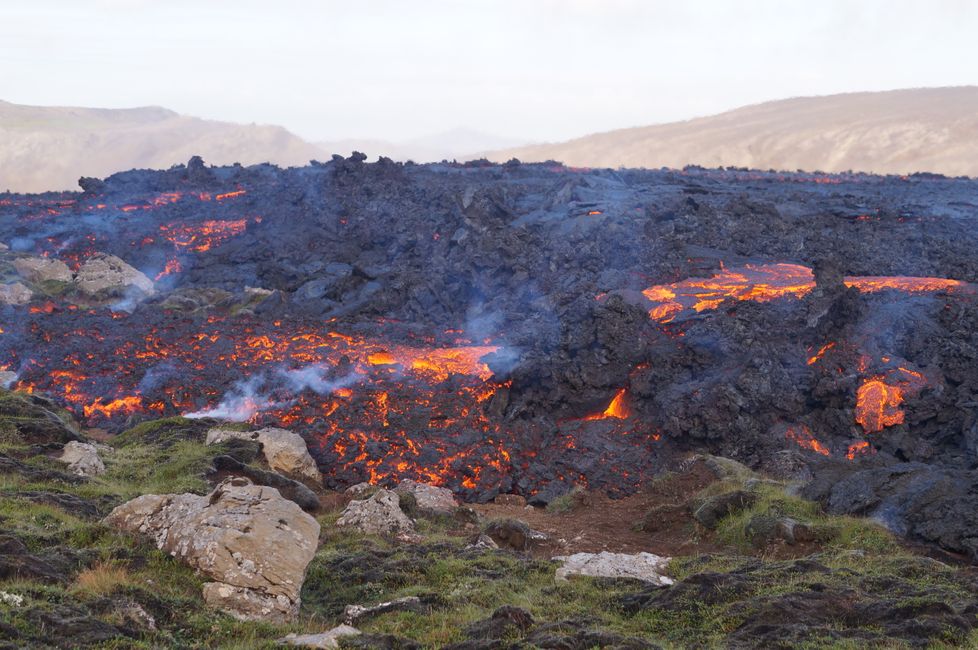
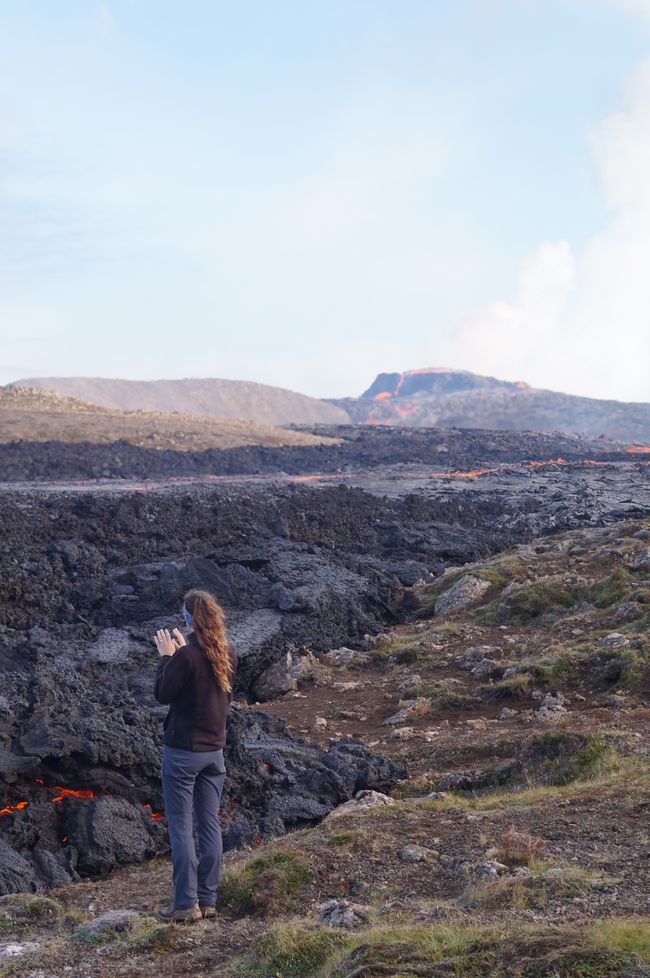
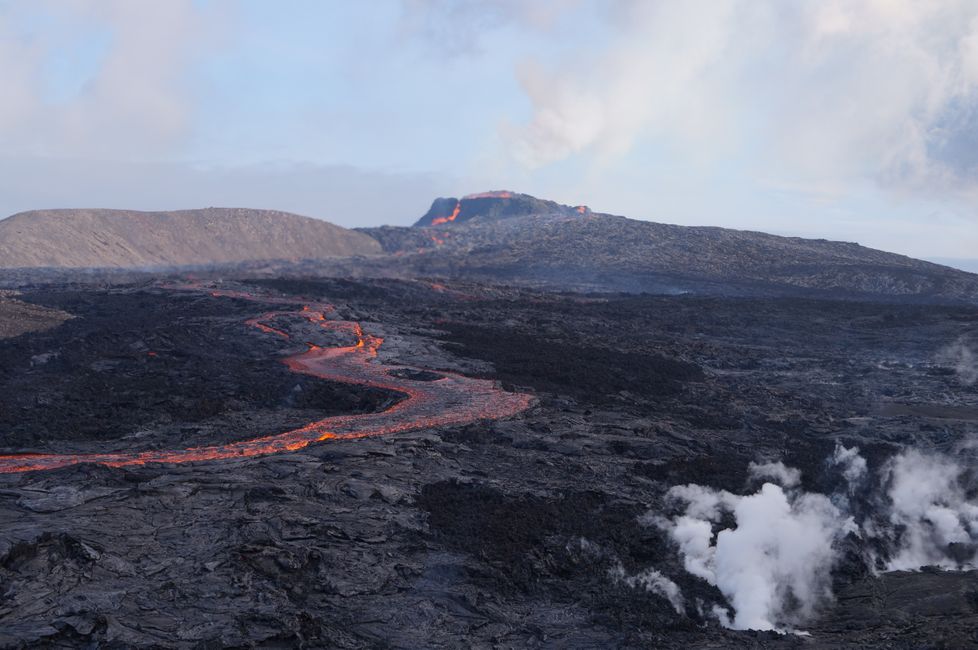
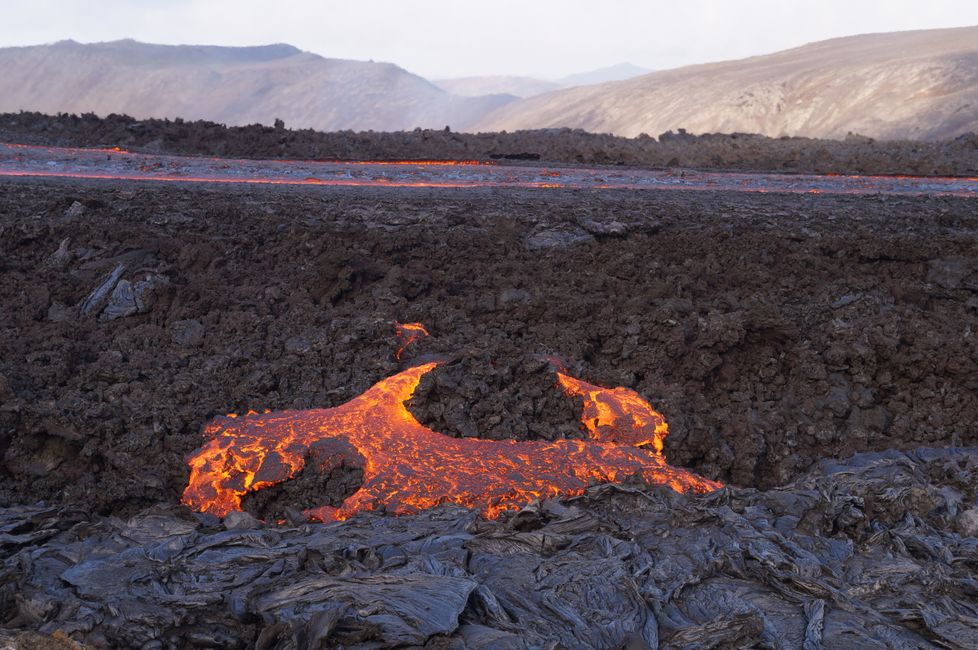
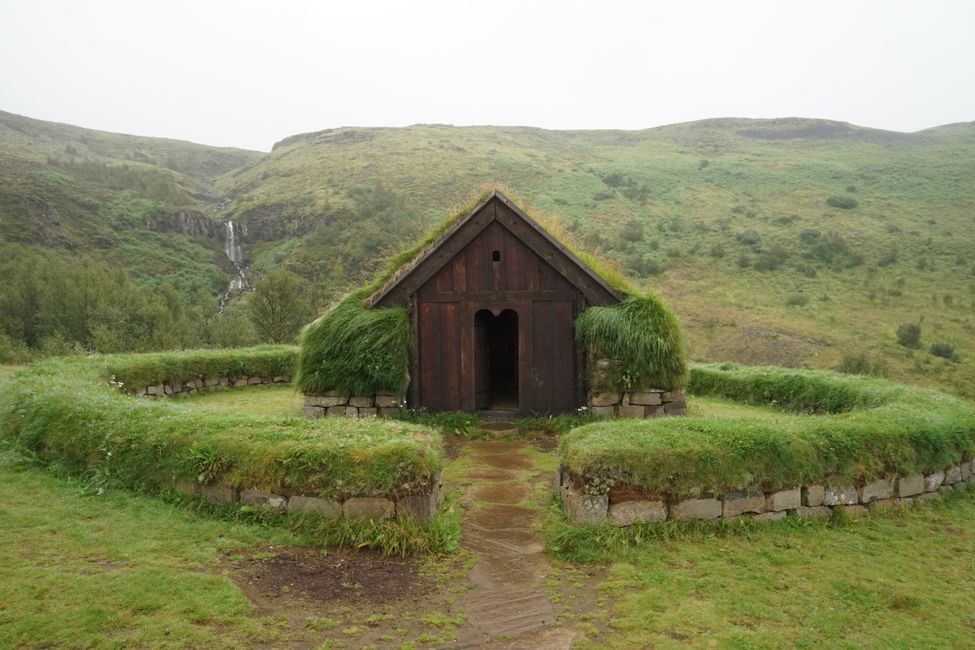
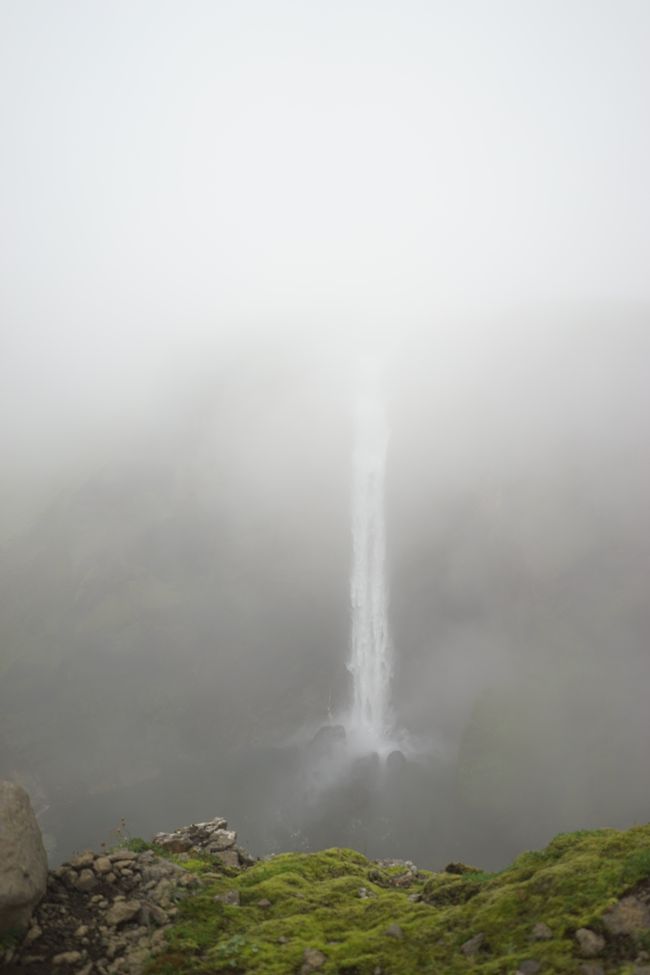
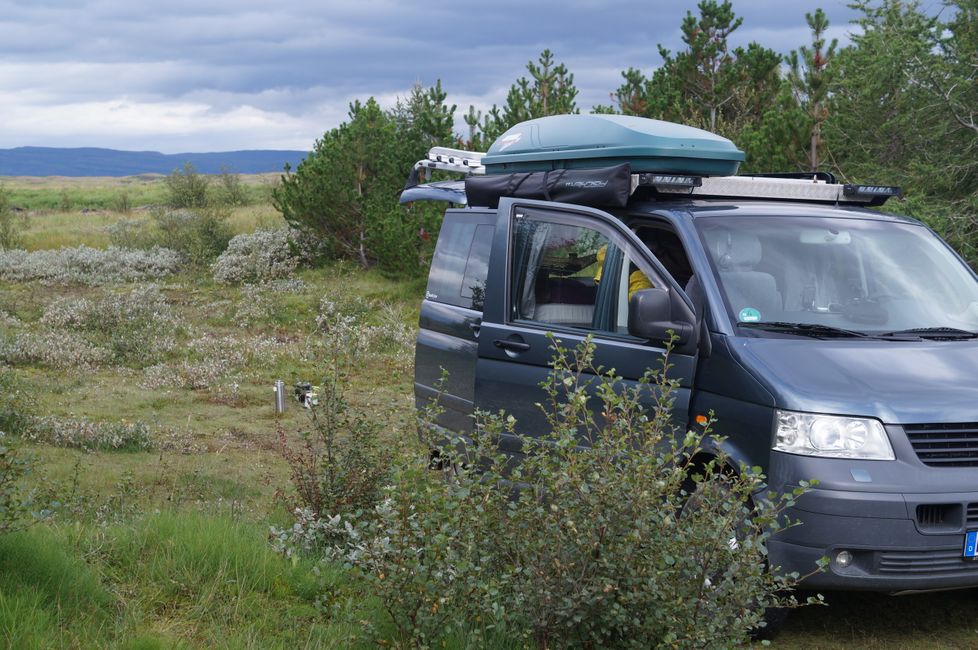
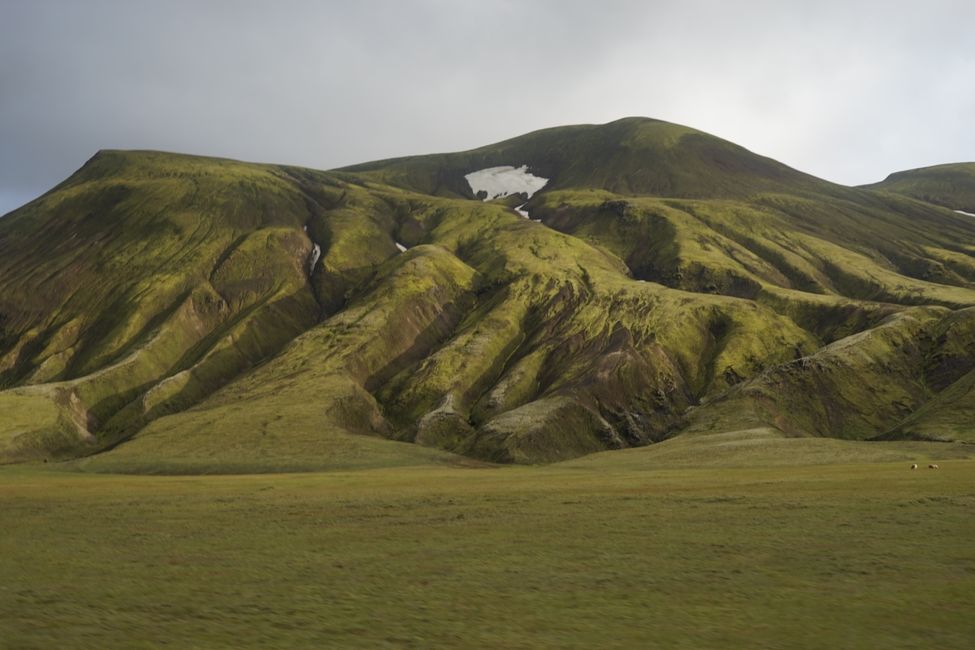
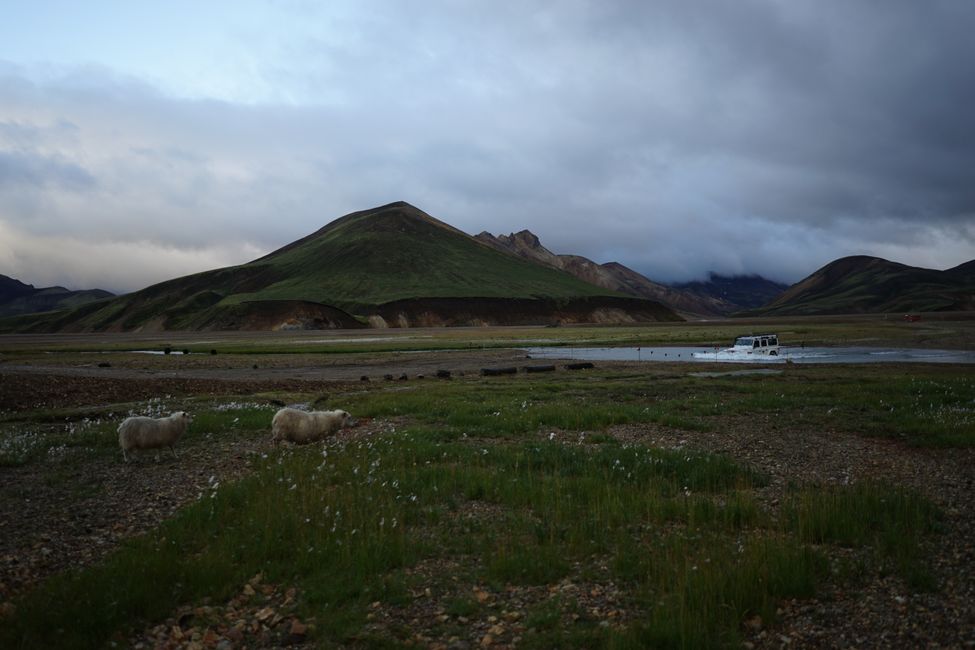
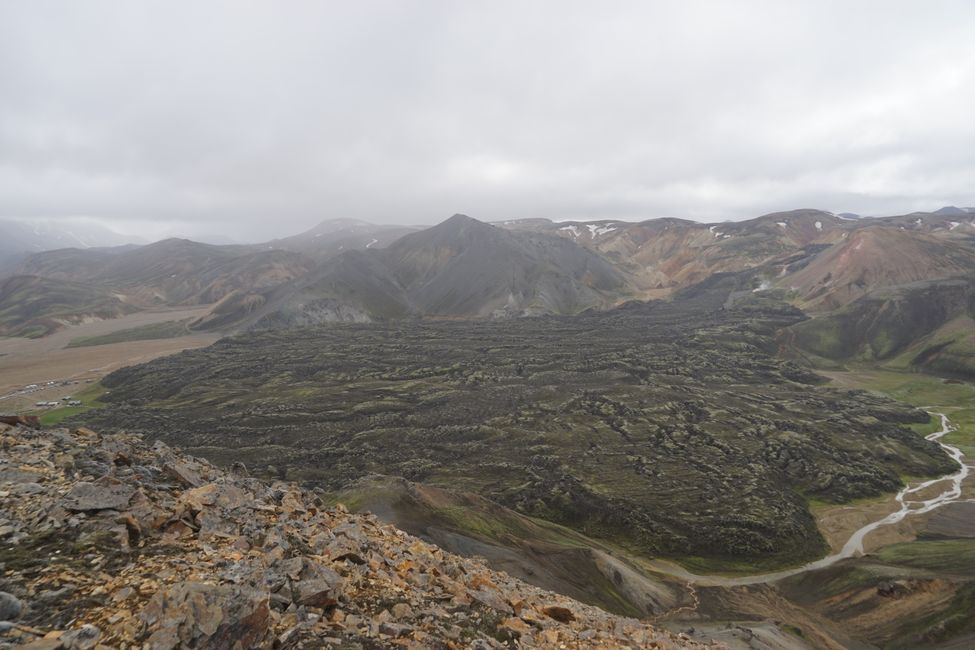
Debanye aha na akwụkwọ akụkọ
Saturday, 21.08.2021
In the afternoon, we set off again and drive to Glymur Waterfall, where we spontaneously start a hike without much information. At the beginning, it's still dry, but after half an hour, it starts raining again. The trail is sometimes quite steep, but the view from above of the waterfall, which falls deep into a gorge, is worth it. Somewhere on the signs below, it said that you have to cross the same river for the circular path above the waterfall and should bring appropriate shoes, but we ignored that for now. Upon arrival at the top, there is about a 15-meter-wide riverbed in front of us, with water depths of up to 40cm. We watch fellow hikers putting on water shoes and wading through the almost knee-deep river with their hiking shoes in their hands. It's raining harder. But because we're already here, there's no turning back now. So - shoes off, socks off, and off we go. And don't slip. It's freezing cold and quite prickly, but we make it and are very proud when we start descending on the other side.
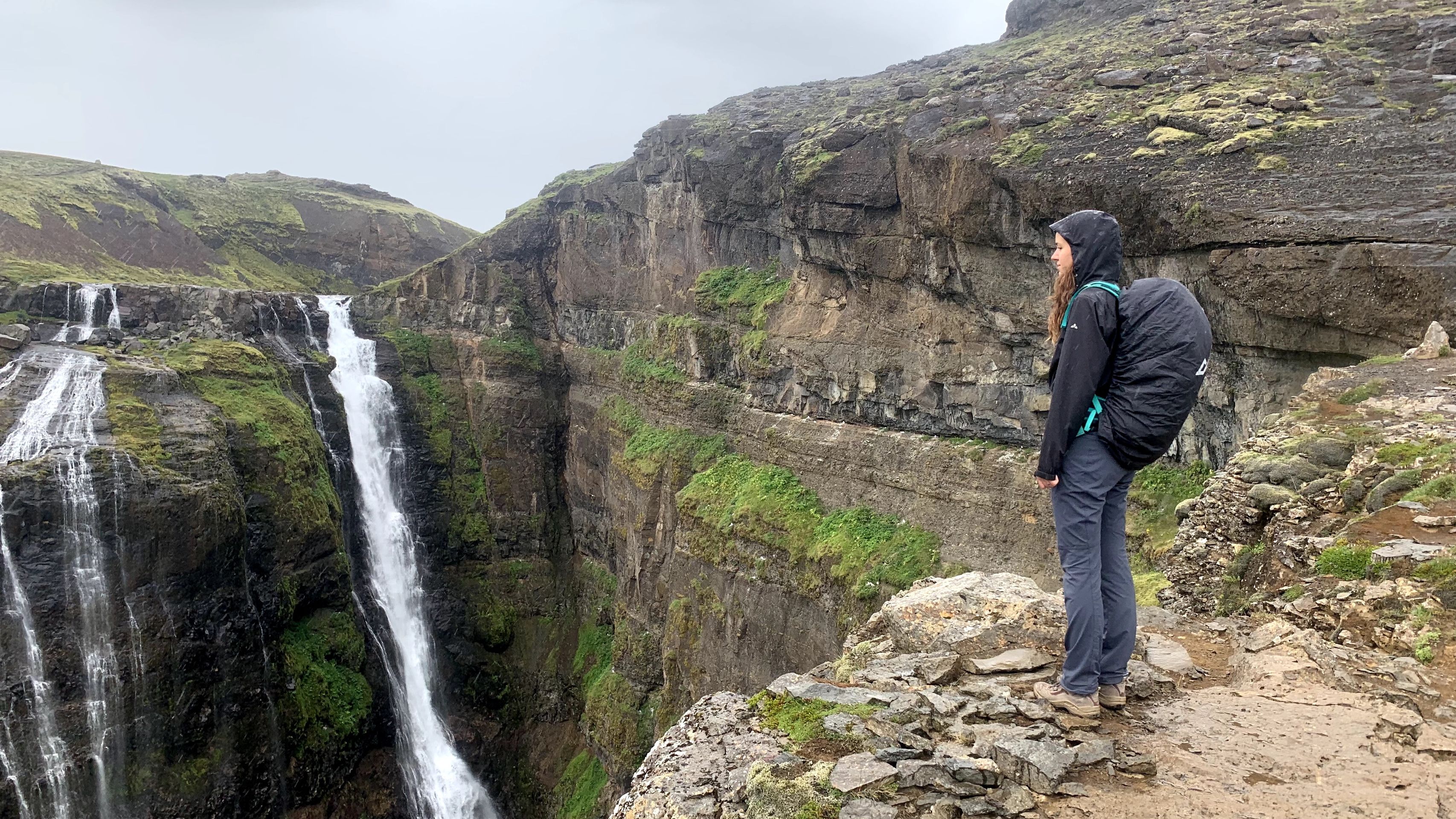
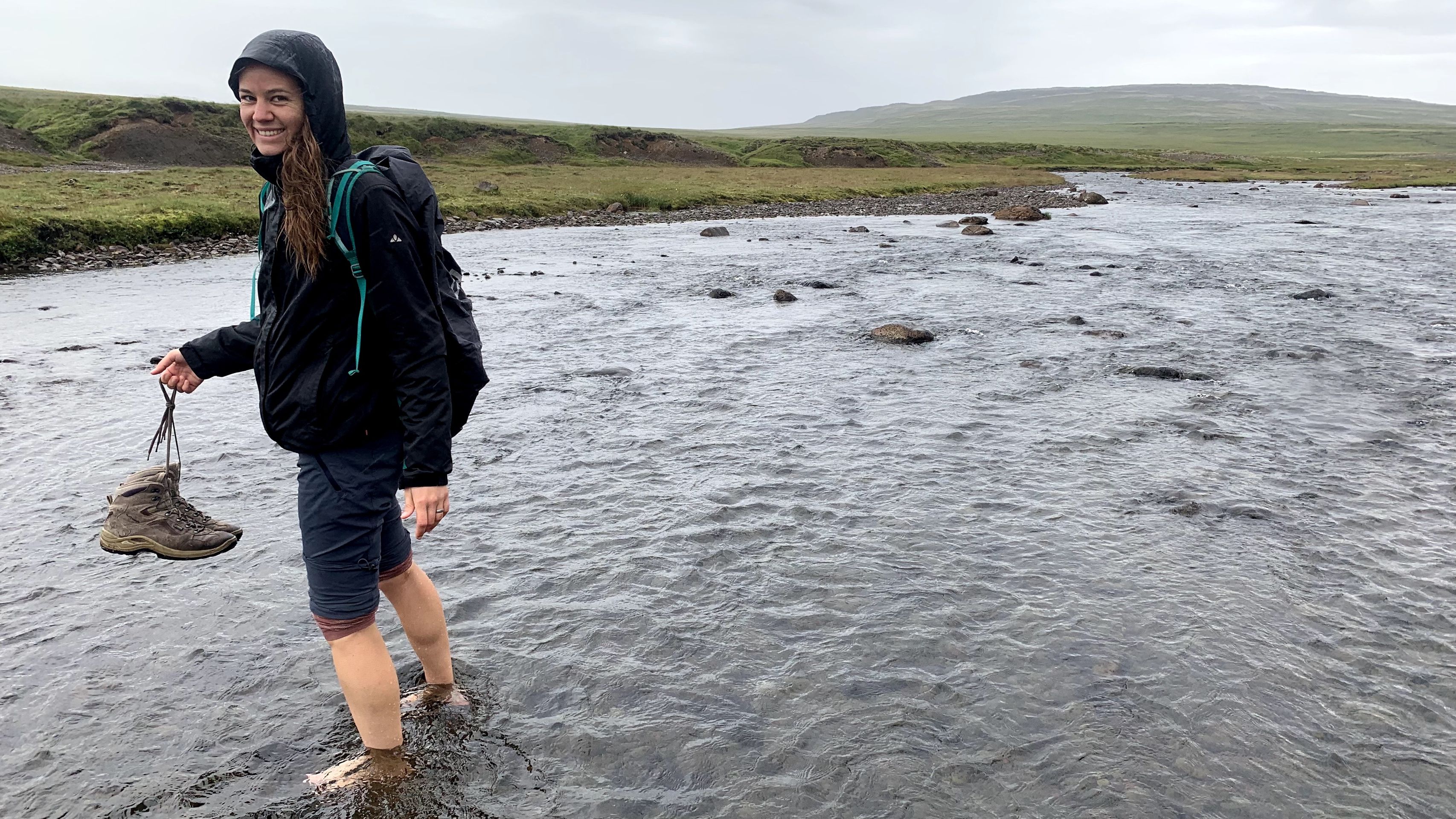
In the evening, we find a secluded place to sleep and have a very special dinner during a break in the rain: pan pizza. I was initially skeptical, having seen it on Instagram influencers, but the desire for (affordable) pizza is so great that we have to try it. And the result is fantastic! The (pre-made) pizza dough is rolled out to the size of the pan, pre-cooked on one side, then flipped, topped as usual, and finished cooking with the lid on. The crust is wonderfully crispy and the topping is sufficiently baked through thanks to the lid. Heavenly!
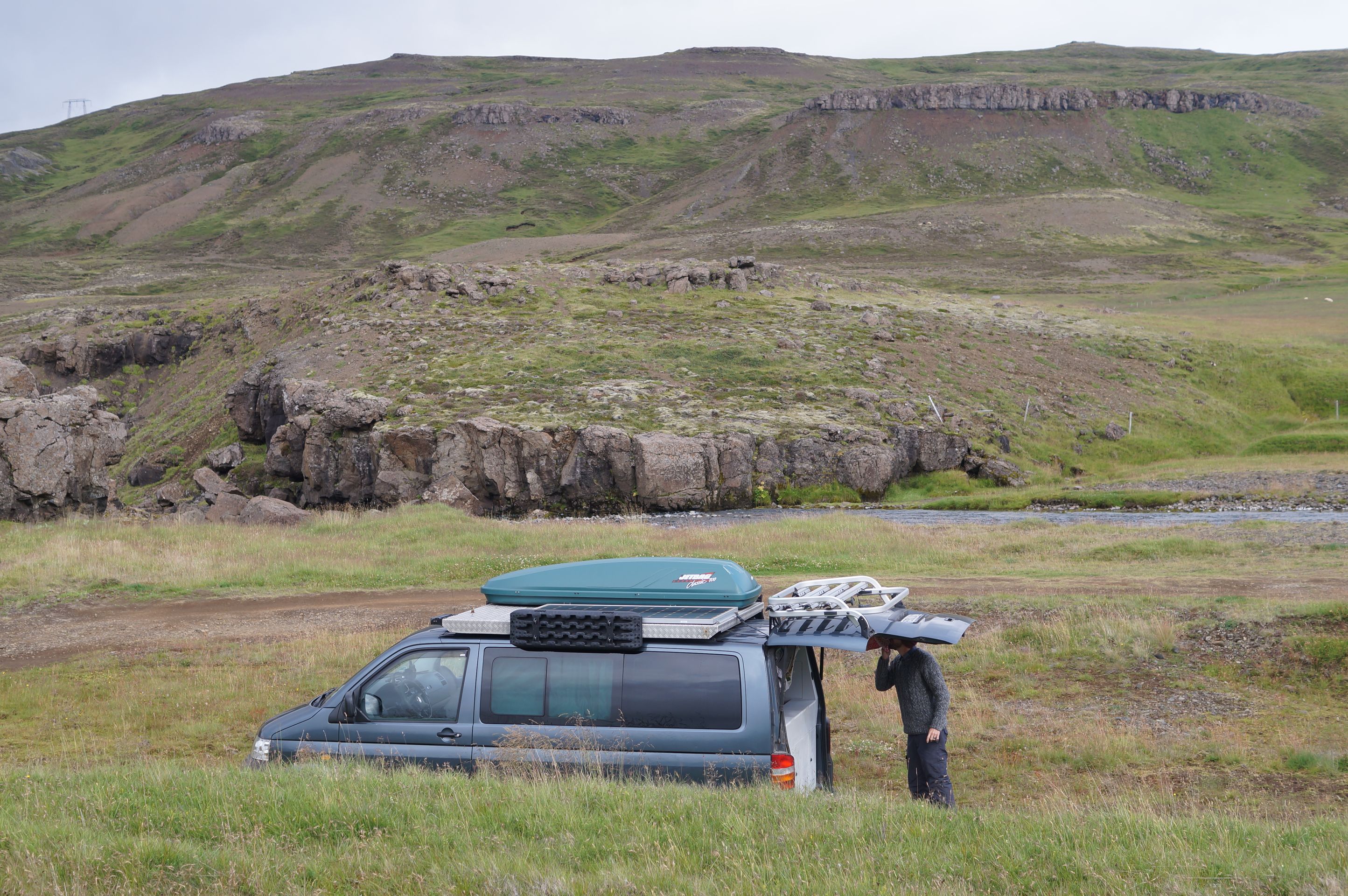
Sunday, 22.08.2021
In the morning light, we notice that our bus is already on slightly softer ground and we almost get stuck in the mud when leaving. It was very close.
In moderate weather, we continue driving to Reykjavik and park at the local campsite. In the evening, we take a long walk through Reykjavik and get an impression of the city. There are mainly shops and pubs, the latter being very crowded with locals and tourists. It's too expensive for us, and we don't feel adequately dressed in our slightly musty hiking clothes for such establishments.
In the evening, I do some work in the hostel lobby because the Wi-Fi doesn't reach our spot, contrary to the information on the website. The campsite is one of the ugliest so far, we are surrounded by metal fences on a large gravel field.
Monday, 23.08.2021
We continue working at the campsite until the afternoon, then I go to buy a new SIM card. I actually wanted to simply top up the existing one with data, but the payment page doesn't accept any of our credit cards. The advisor at the Vodafone store also can't top up the card anymore, so I just buy a new starter kit, which includes a SIM card with 10GB of data. Surprisingly, the starter kit is only about half the price of topping up 10GB of data on an existing card.
Shortly before closing time, we walk back into the city and each buy a genuine Icelandic sweater hand-knitted by Icelanders with Icelandic wool. It's a nice but expensive investment that will hopefully keep us warm from now on.

The next sleeping spot is a donation-based campsite, where only the shower costs extra. It's raining heavily, and there are puddles everywhere in the grass. It's impossible to stay dry on the way to the bathhouse.
Tuesday, 24.08.2021
In the morning, we work at the campsite in the rain for a while, then we visit the owner's flea market with lots of odds and ends. There, we have coffee and a fresh waffle with homemade rhubarb jam.
In moderate weather, we drive to the Geysir area and watch Strokkur blow boiling hot water into the sky about every 10 minutes. In the continuous drizzle, we also visit Gullfoss, the hundred thousandth waterfall on this journey.
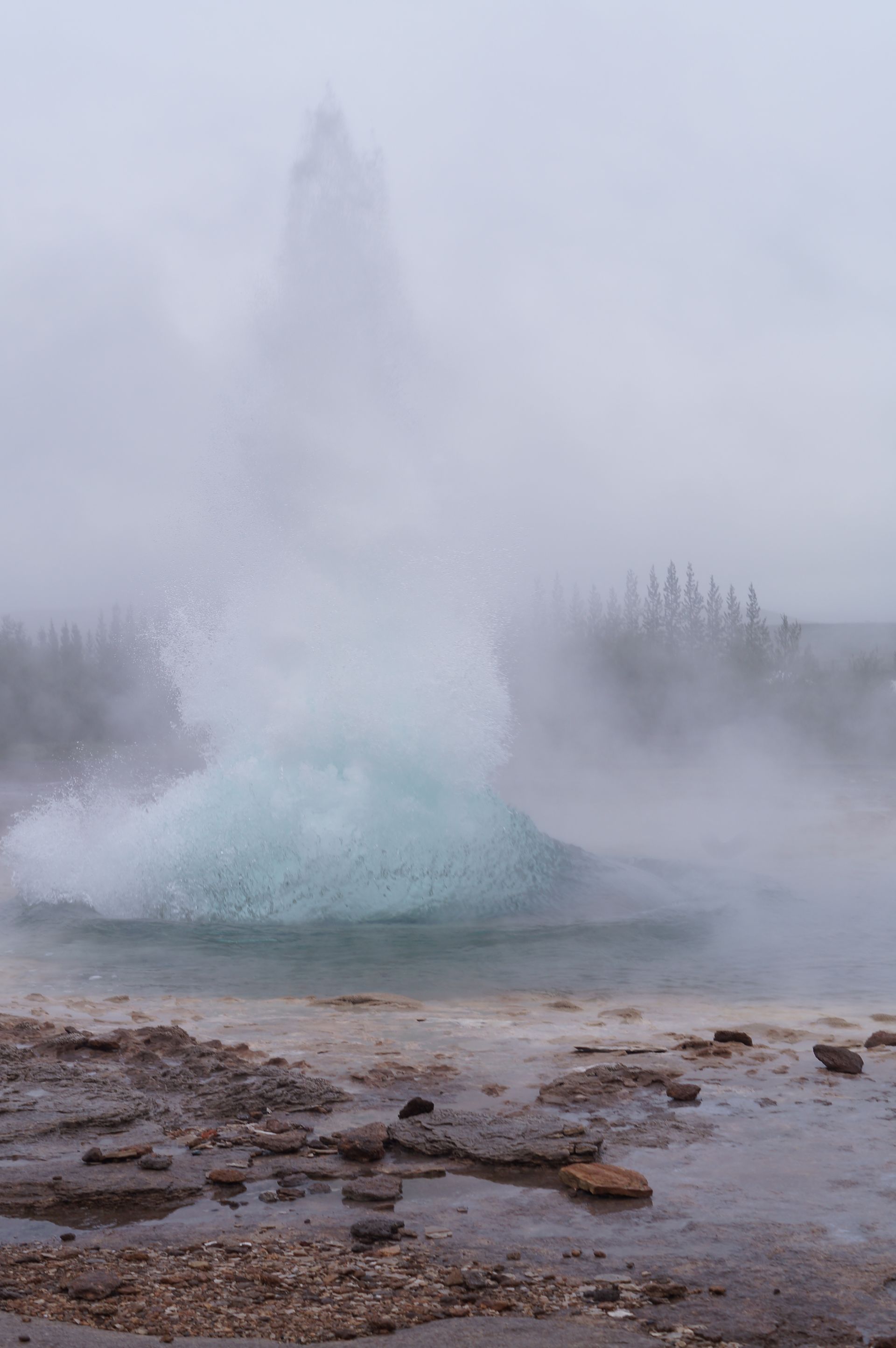
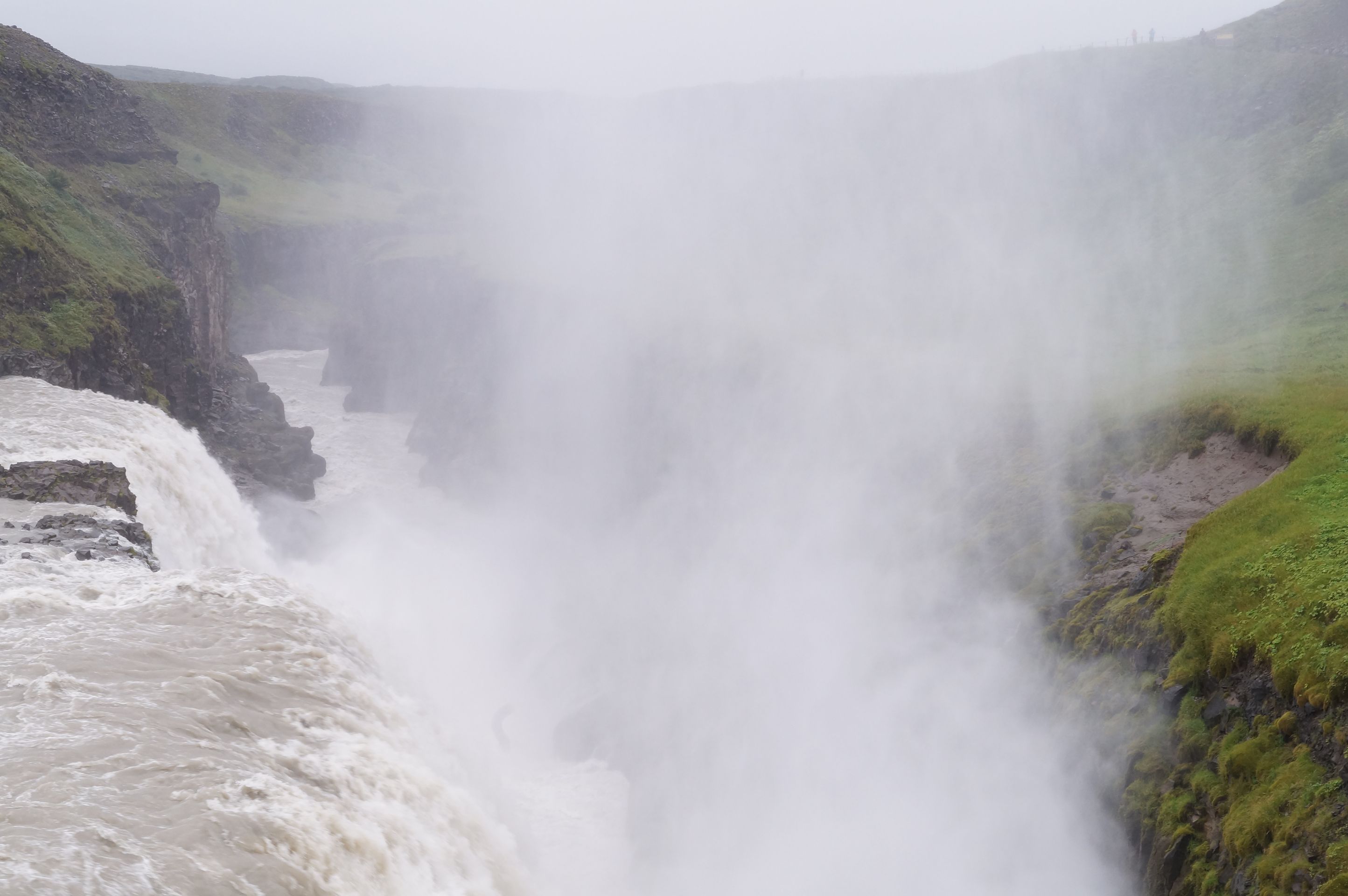
For the night, we head to the interior of the country to Kerlingarfjöll via a very rough dirt road. There, we meet Frank and Sabrina with their little daughter Alba again, who we have been running into regularly since the ferry. The rain is shot horizontally by the wind, and the mood is quite low.
Wednesday, 25.08.2021
In the morning, we are briefly greeted by sunshine, then we take a short circular hike in the geothermal area. There is steam and bubbling everywhere, and the landscape takes on wild colors from yellow to black to bright green. Hot rivers meet snow fields. Maybe there are some gases in the air because we have to breathe quite heavily while hiking, even though we are less than 1,000 meters high. Most of the time during the hike, we are in dense fog with barely 10 meters of visibility and strong wind, the ground is muddy and slushy. At the end of the trail, it clears up again, the whole area is quite impressive and wild. We encounter another film crew - this time for a documentary for National Geographic.
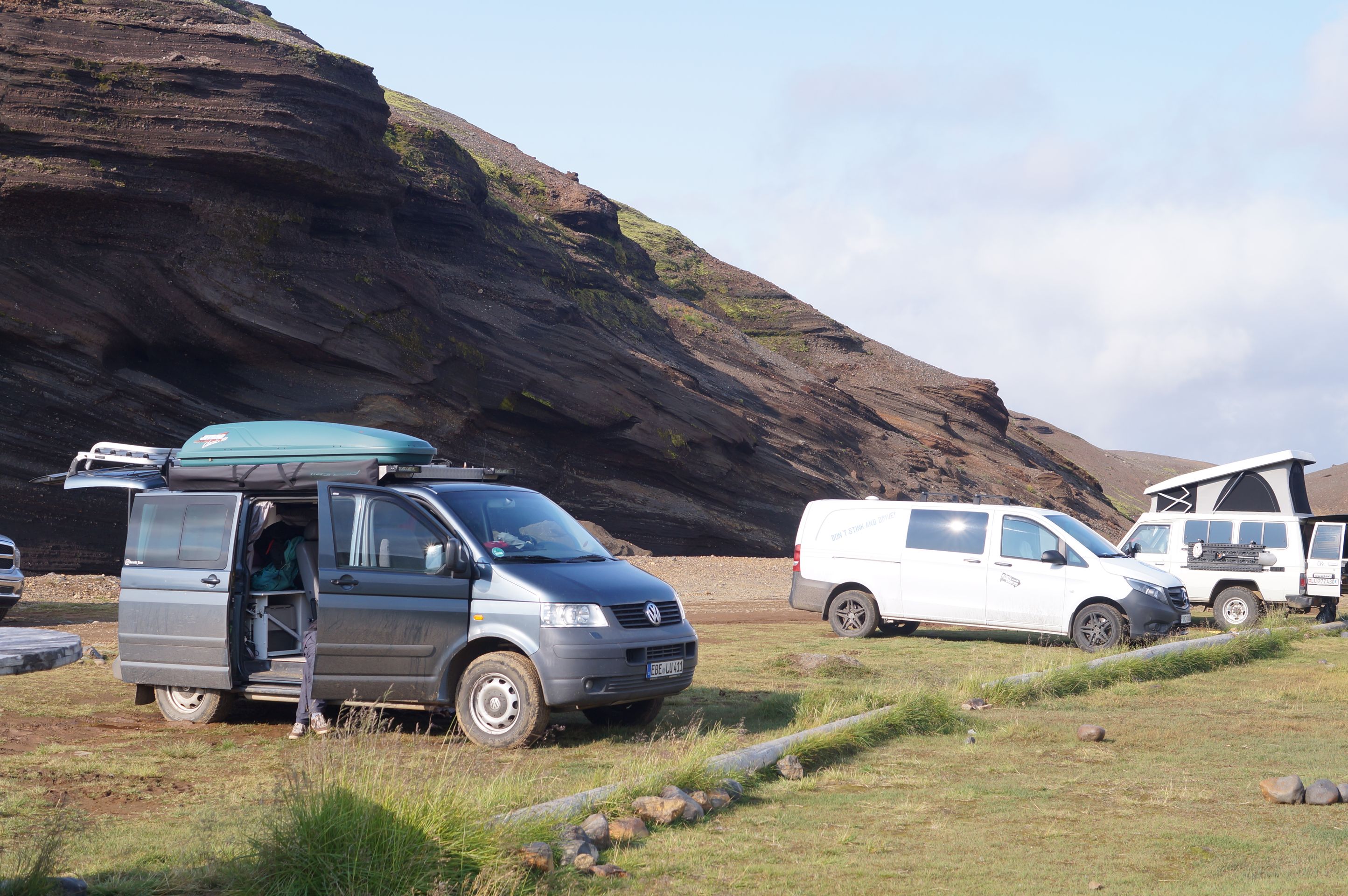
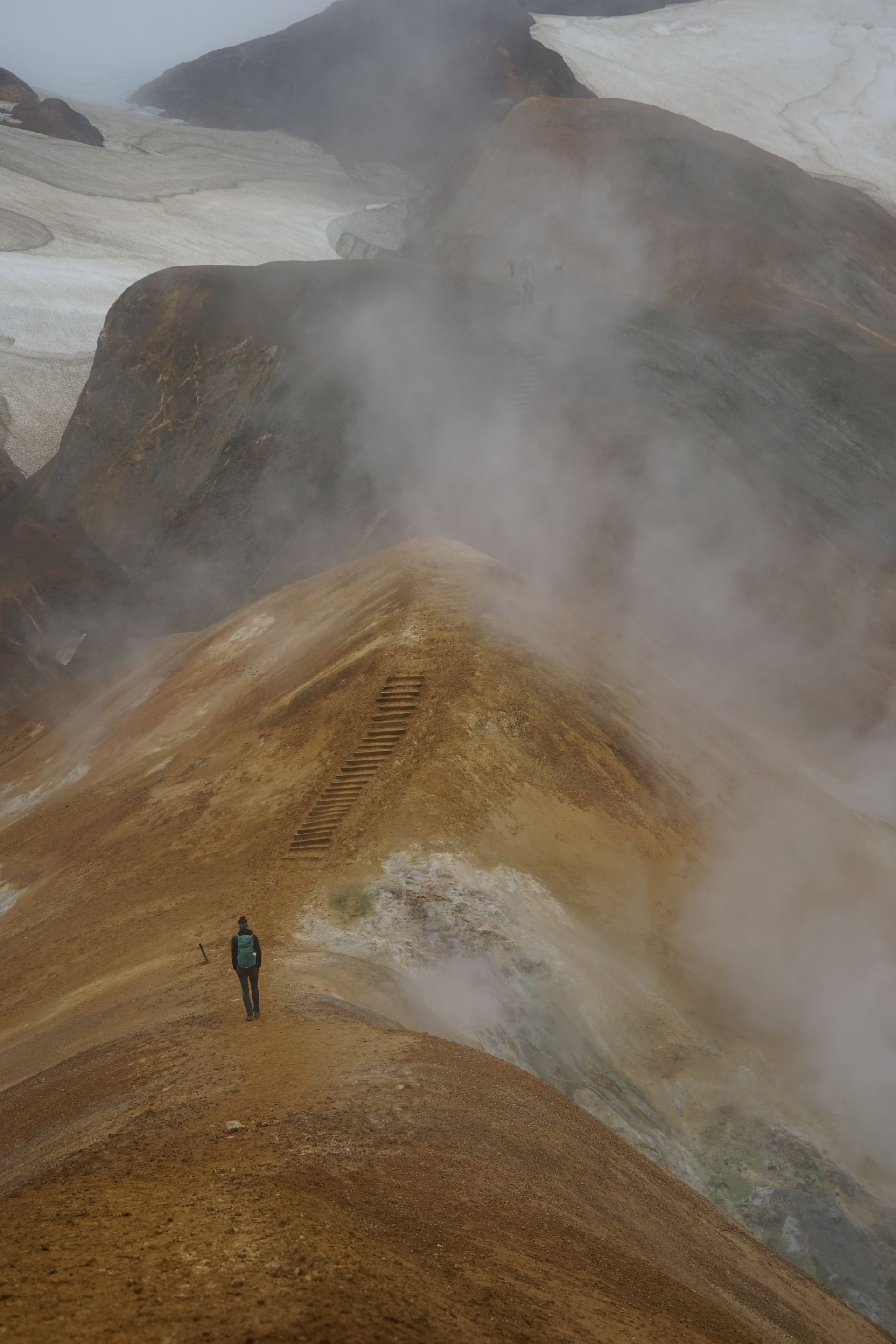
In the evening, a longer drive takes us back to the southwestern tip, as supposedly a window in the clouds will open up tomorrow morning and we definitely want to see the active volcano Fagradalsfjall. We sleep directly at the trailhead, even at night in the pouring rain, people are still coming back from the volcano hike. A search and rescue team is on-site watching Netflix in their car.
Thursday, 26.08.2021
We make an early start and start walking at 6:00 a.m. for the sunrise. The rain has actually stopped, and it's getting clearer every minute. We catch the first glimpse of the cooled lava field, then the second glimpse of the still glowing lava field. Higher up, we see the lava flow and eventually the volcano crater opening towards us.

We actually have sunshine and clear visibility, there are hardly any people with us so early. The volcano is spewing intensely red-orange glowing lava from the crater. The 1,000-degree hot, liquid rock flows down the lava field at a considerable speed in a several meters wide stream. A few steps down from the observation hill, we are right at the lava field and warm ourselves like at a burning campfire. This is the perfect place for our snack. I am surprised that we can get so close to the lava field, liquid lava keeps breaking out of the edges of the field and smokes away the grass.
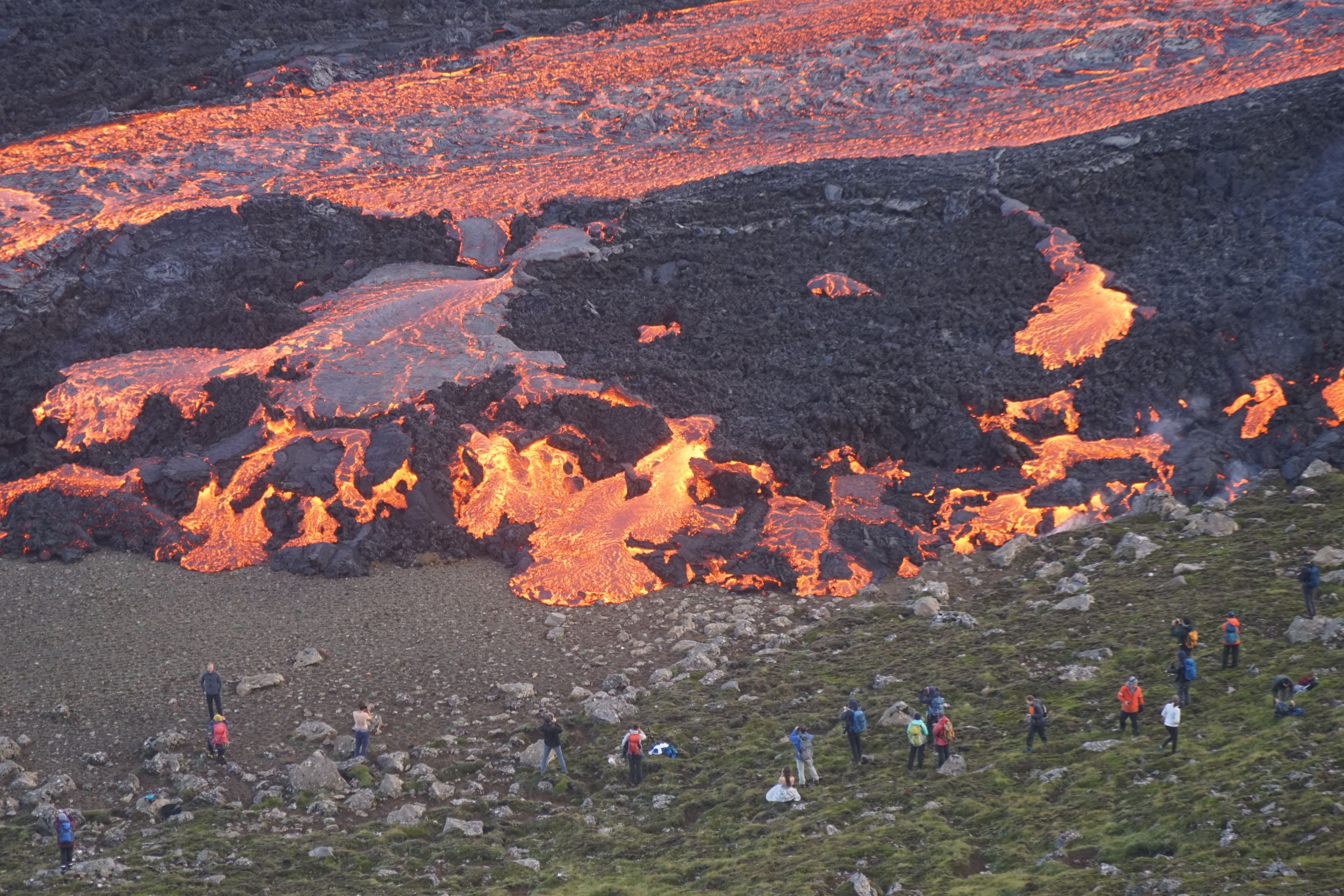
On the way back, dense fog sets in, but suddenly hundreds of people are walking towards us. We were so lucky.
We drive back into the interior with a longer drive. On the way, we visit Háifoss - but completely without a view. We can only guess the waterfall, which drops directly in front of us to a depth of 122 meters. We slept in a beautiful secluded location at a small campsite by the water with a bit of forest, which is rather rare here.
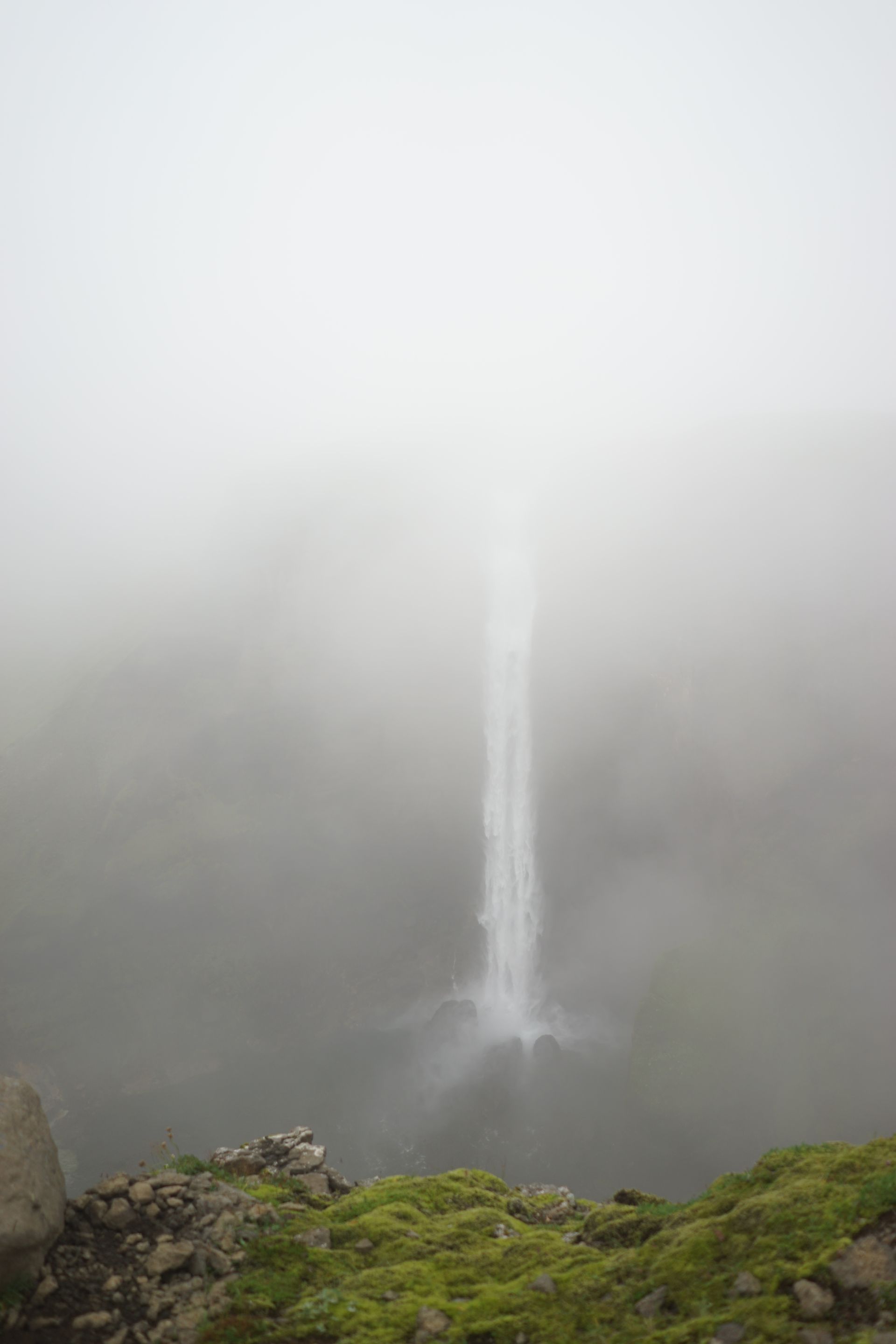
Friday, 27.08.2021
Due to bad weather again, we sleep in. It was only 9 degrees at night and it's raining constantly. In the afternoon, we work in the conservatory of the campsite. However, since it is not heated, we eventually freeze completely.

We warm up again in the car while driving to Landmannalaugar, and the weather slowly improves. The campsite is located in the almost empty riverbed with wild, colorful scenery all around us.
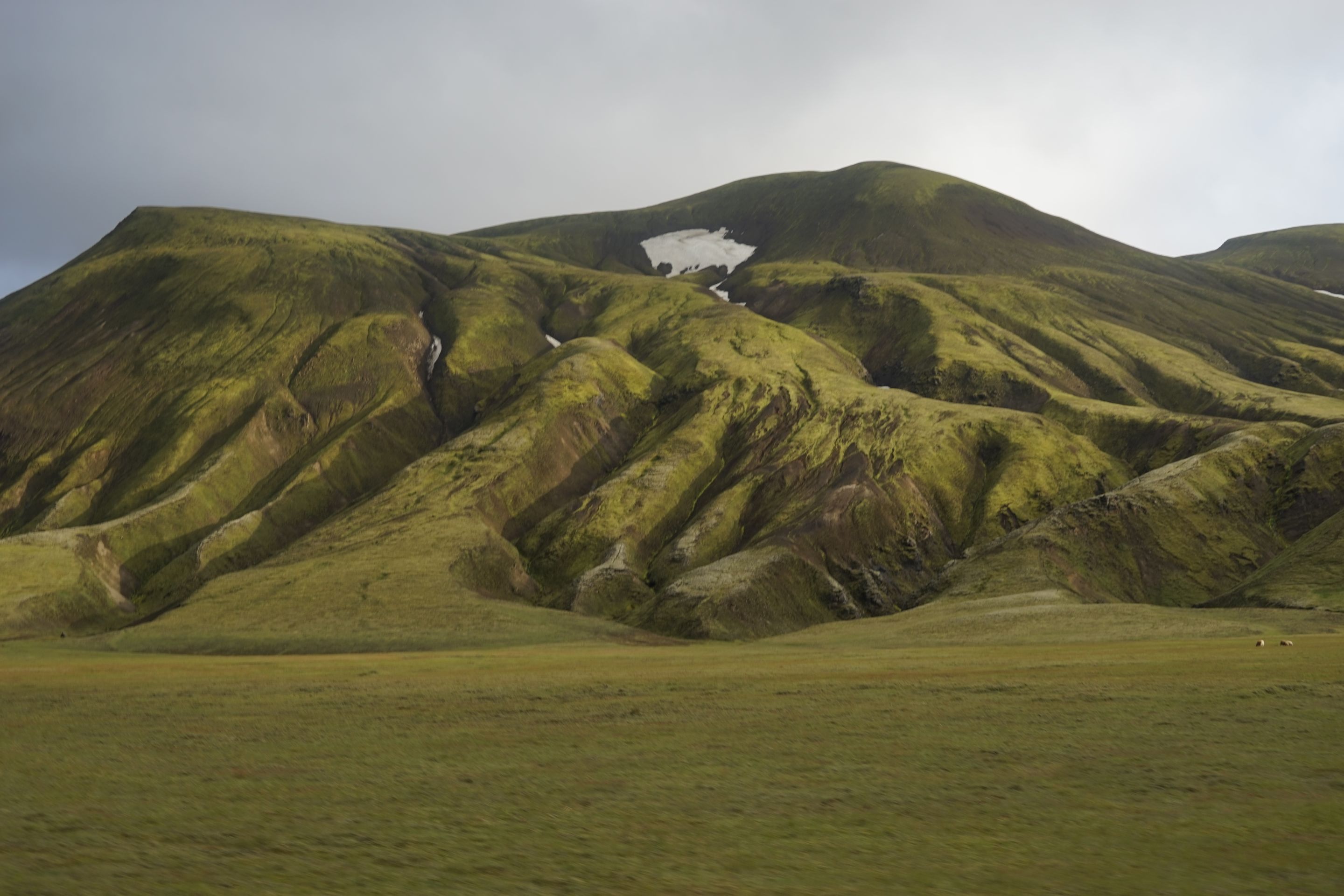
After arrival, we take an evening walk through the lava field, cook, and at half past ten, we warm up again in the hot pool, where several hot springs flow into the cold river. Due to the late hour, we are completely alone in the end, which is very rare here. It's almost like taking a bath, but without moving, as the water surface is extremely hot, but it is still cold at the bottom. So we paddle around in the water about 50cm deep and look for the perfect temperature.
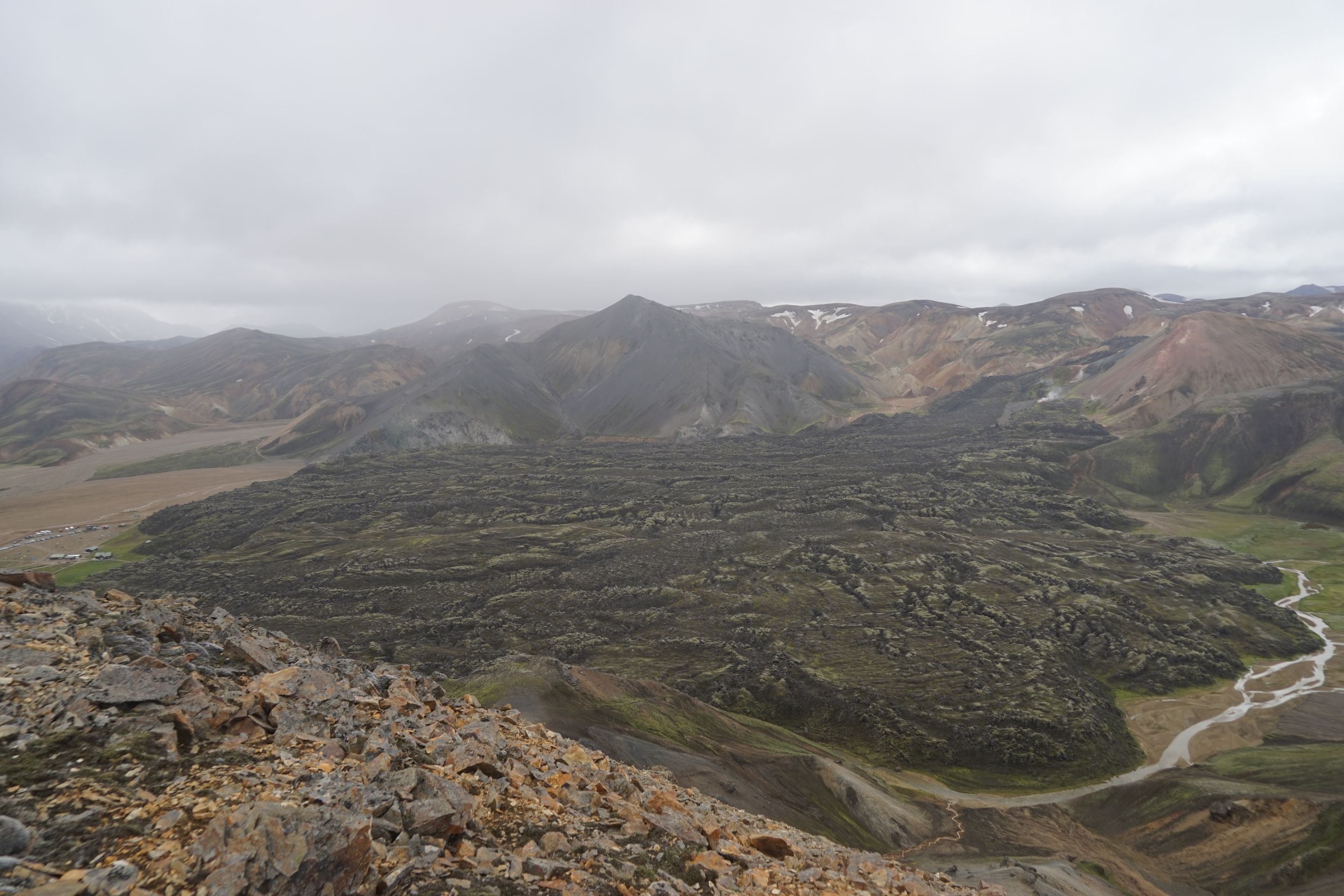
Debanye aha na akwụkwọ akụkọ
Zaa
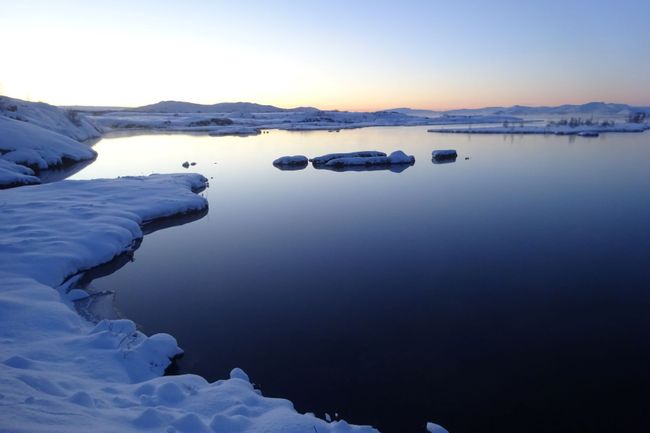
Akụkọ njem Iceland
